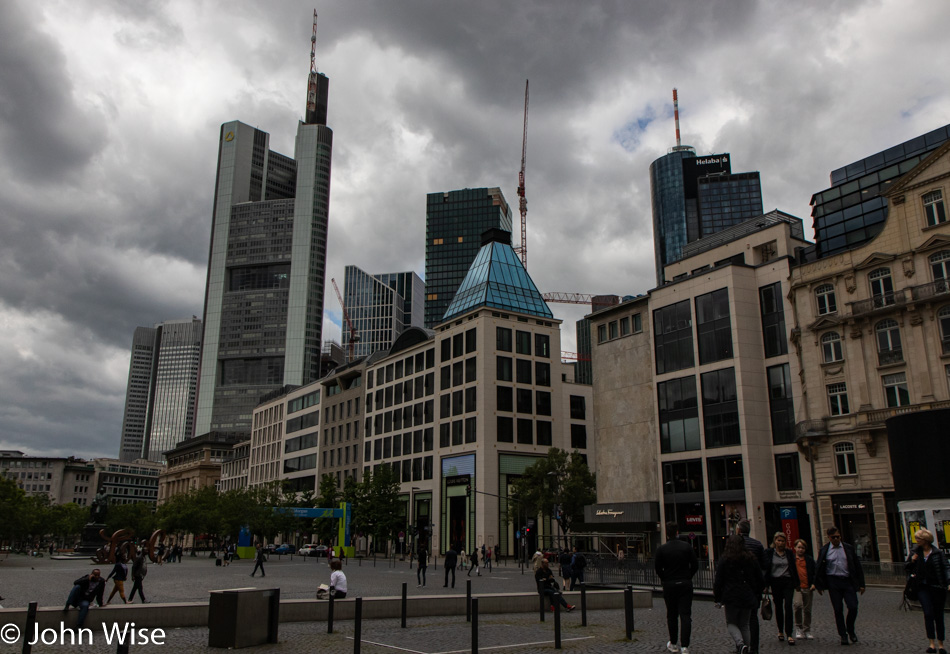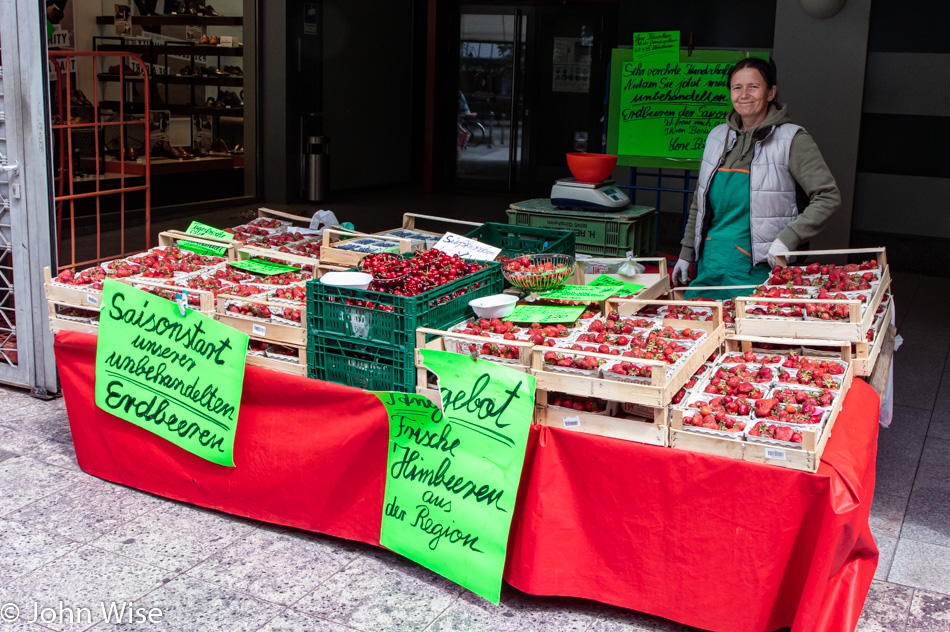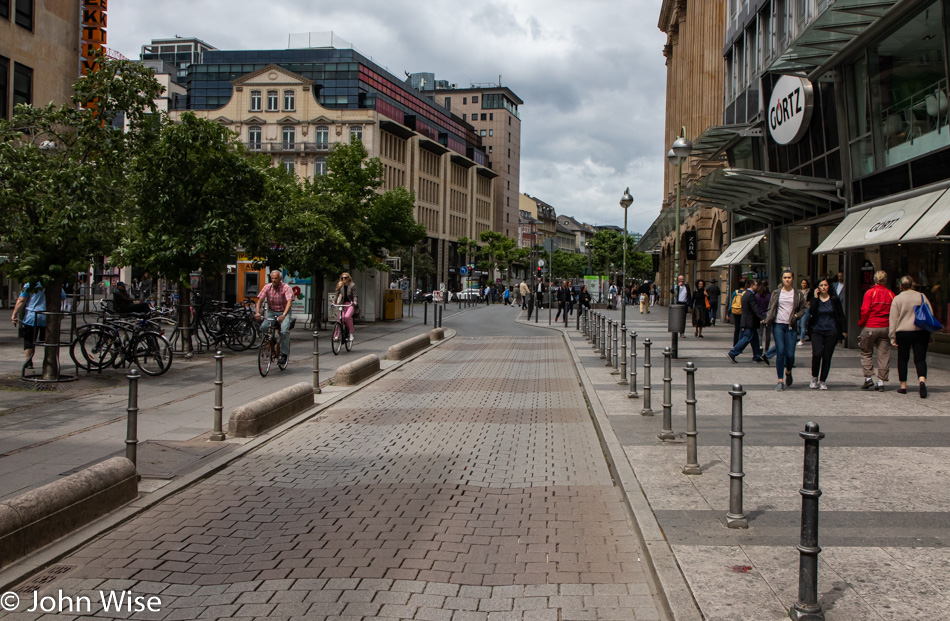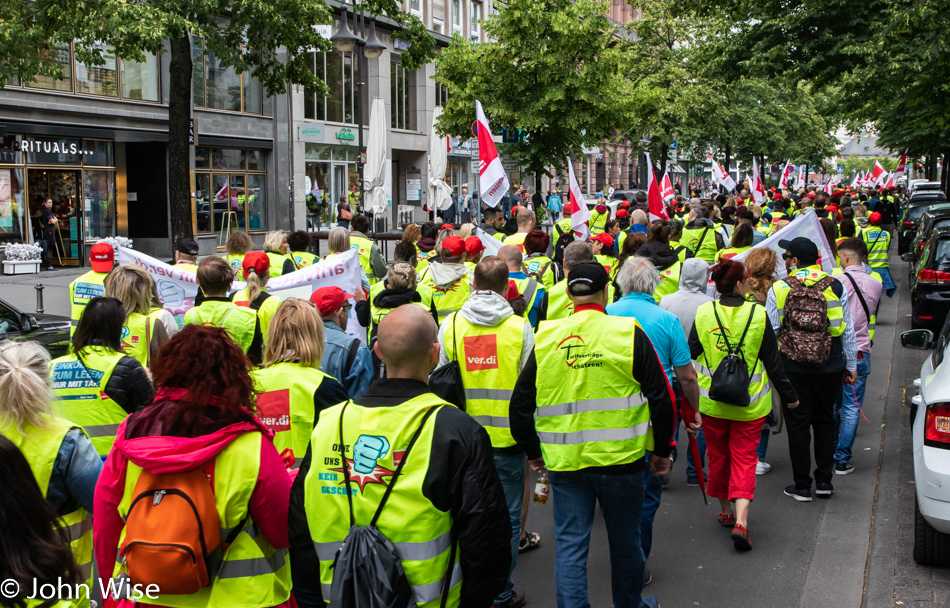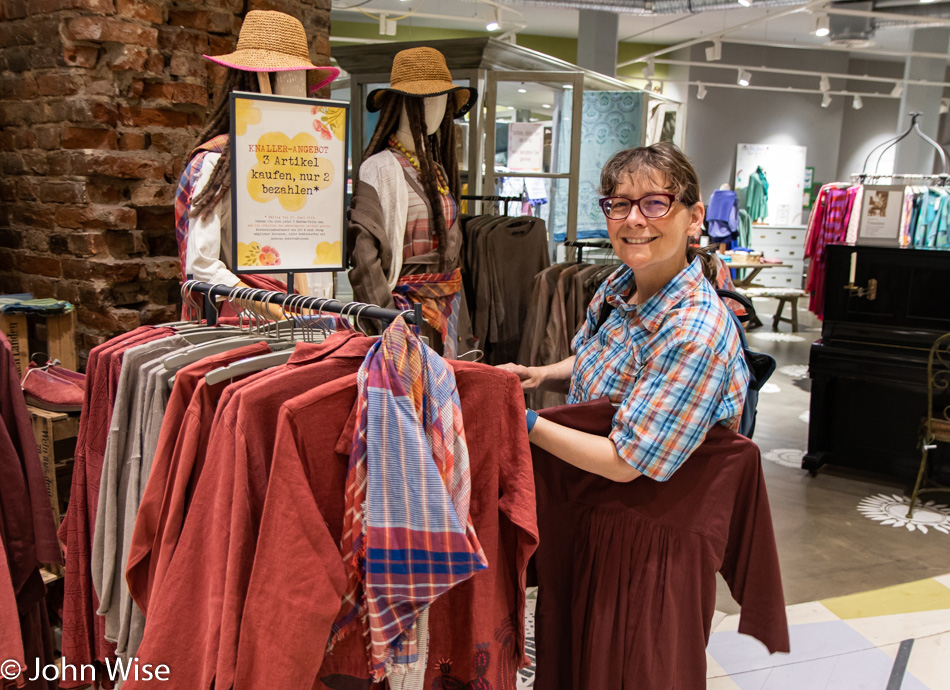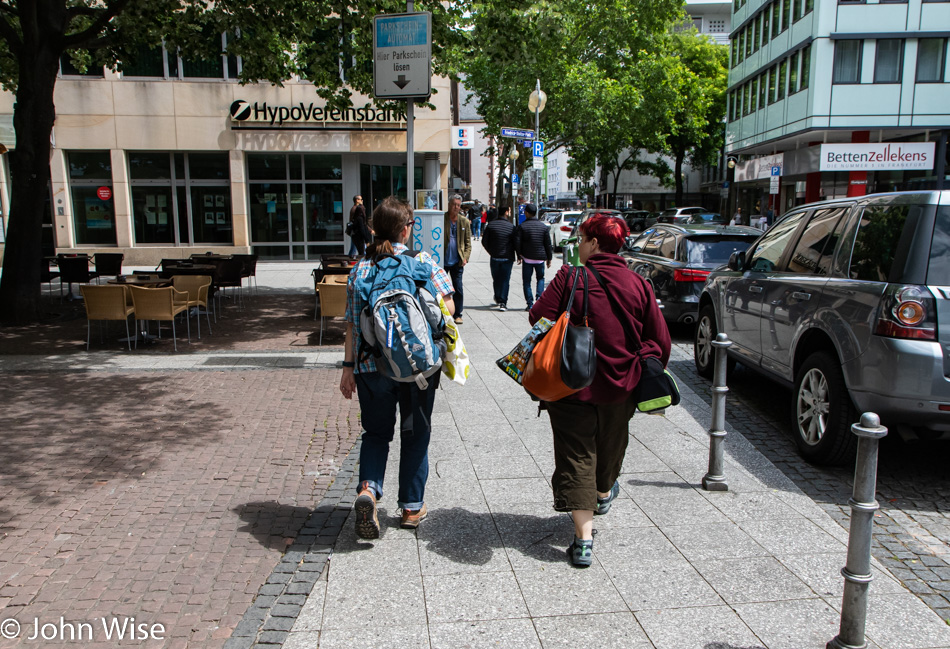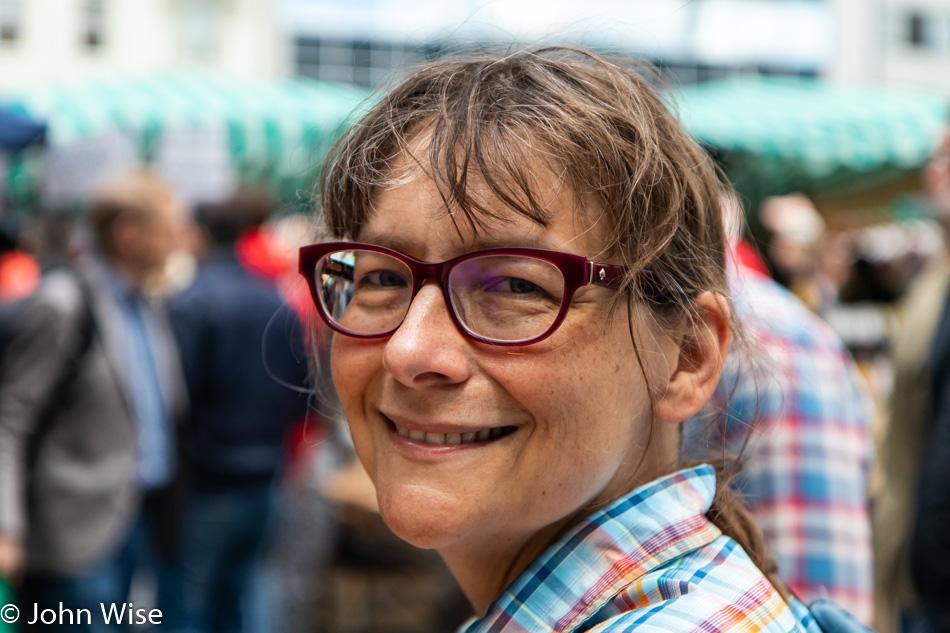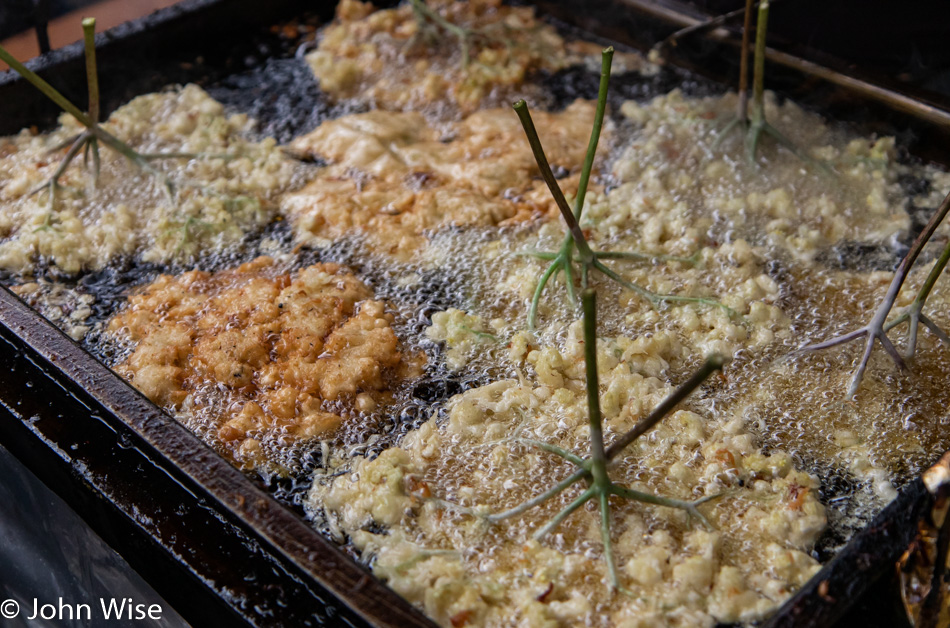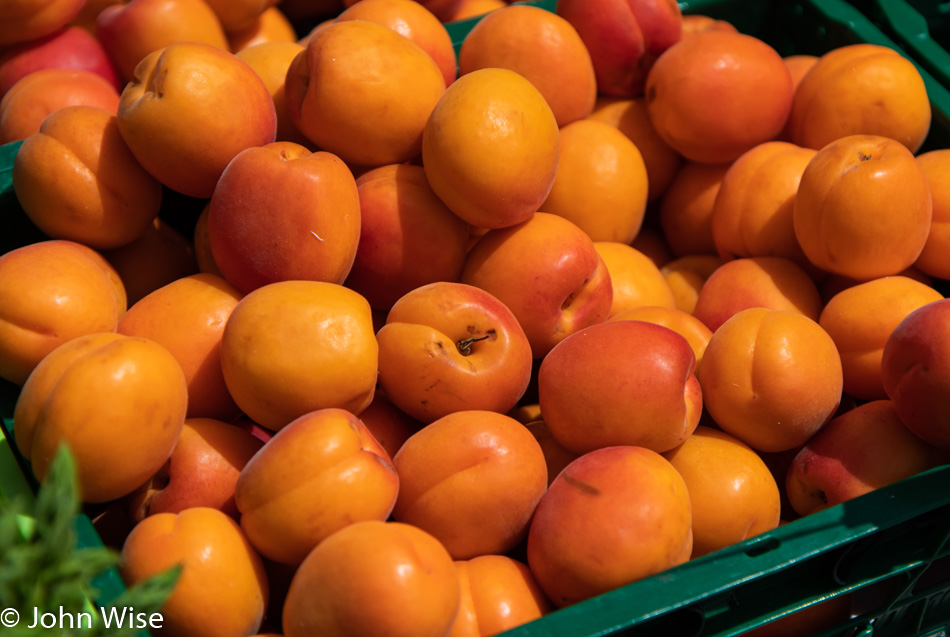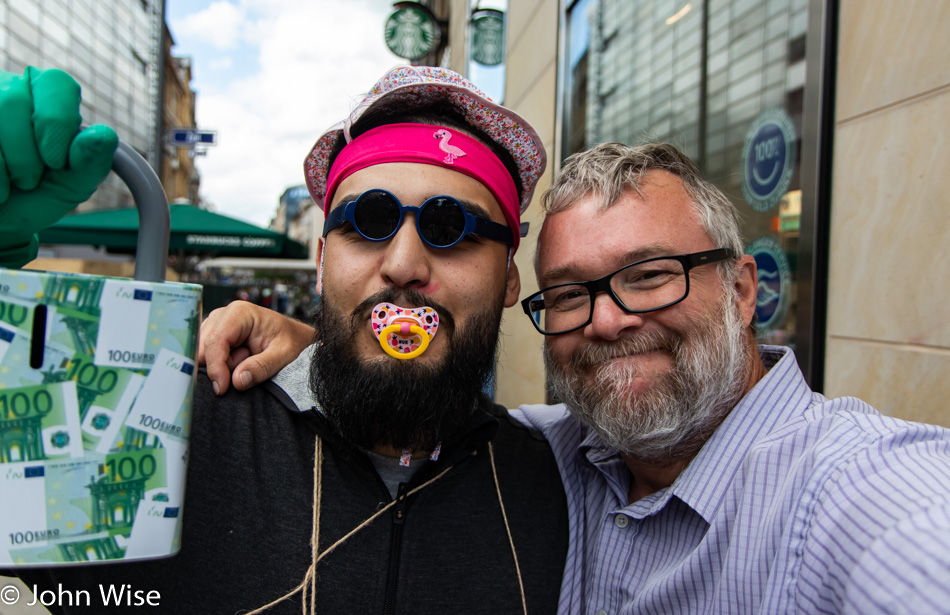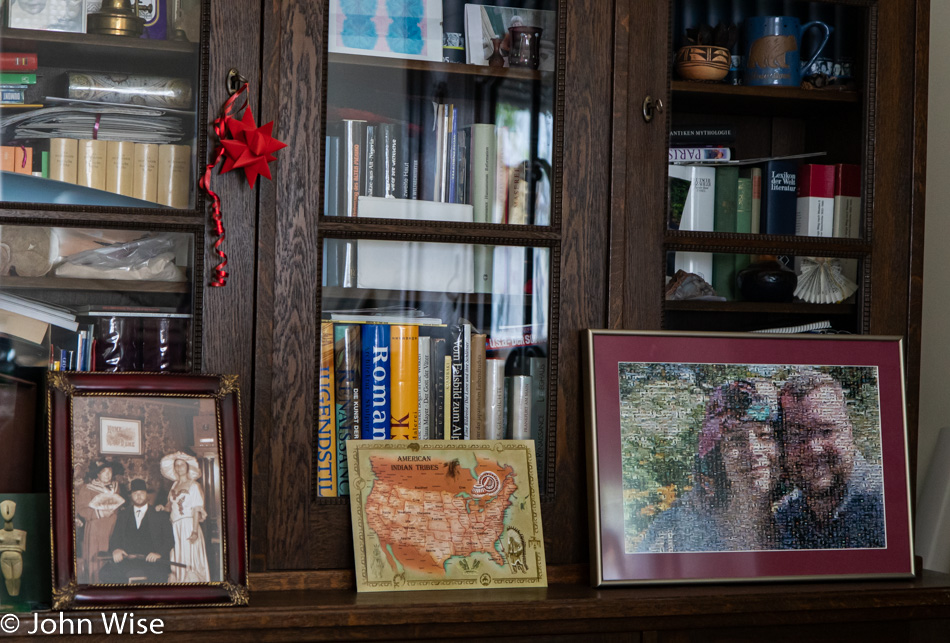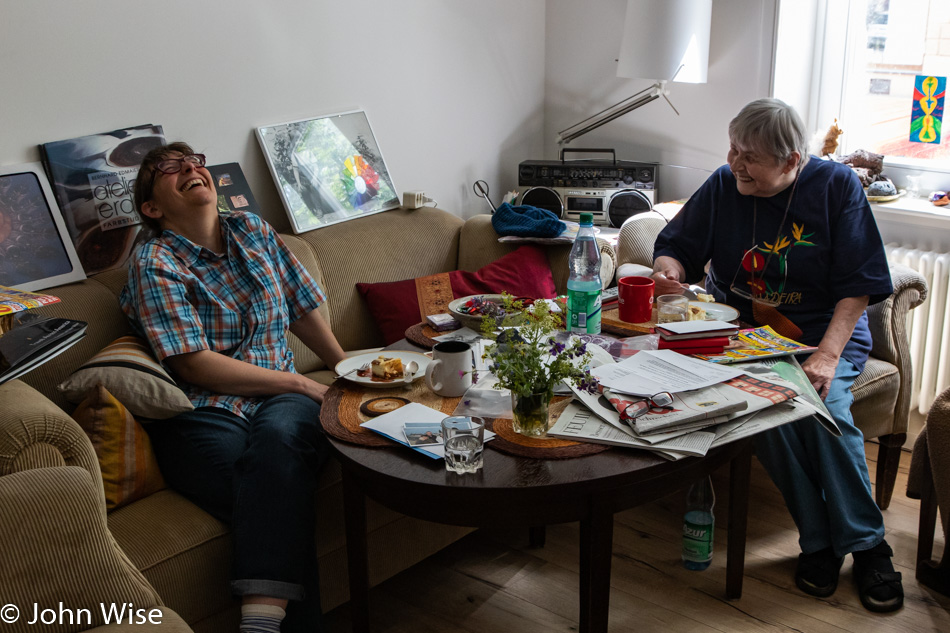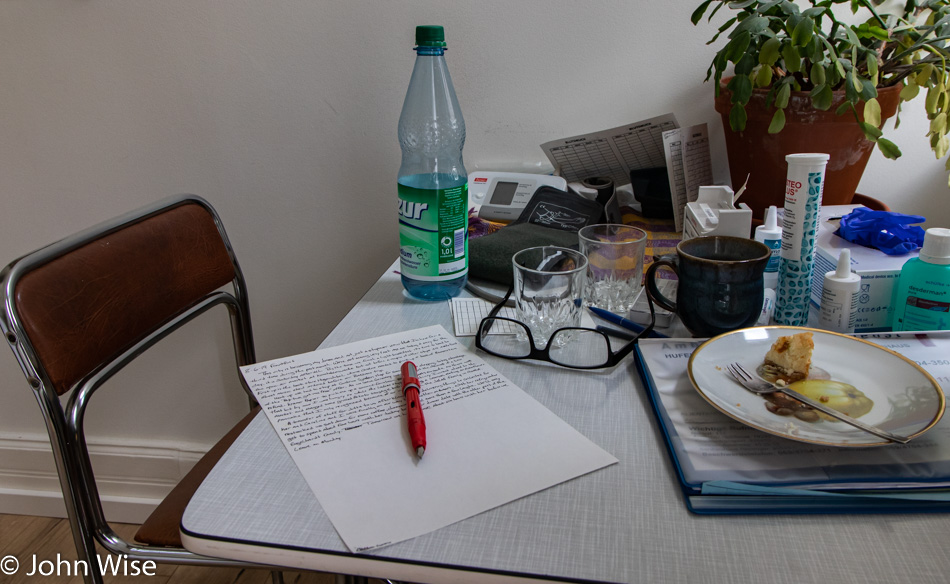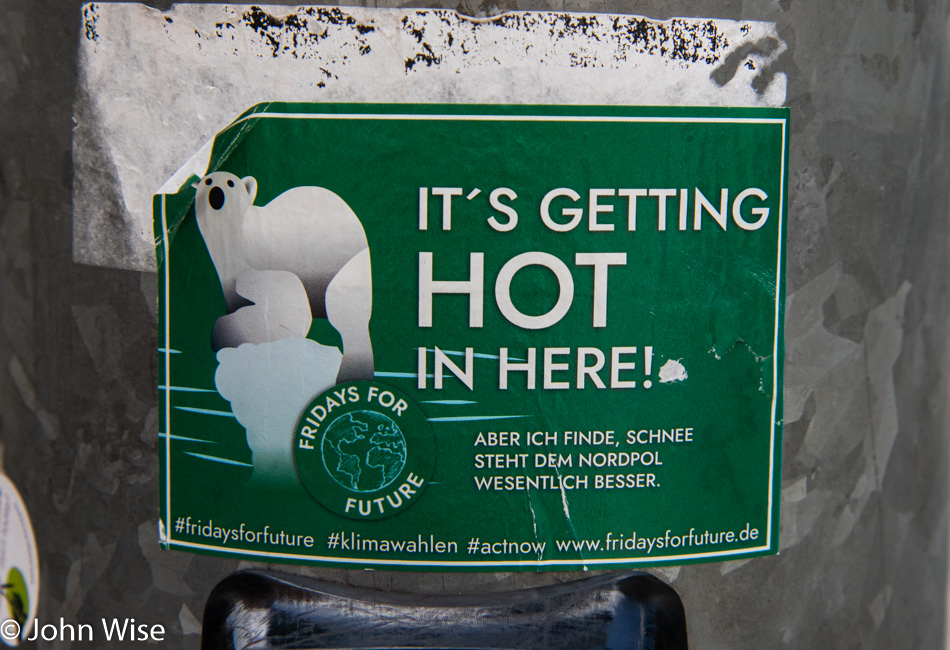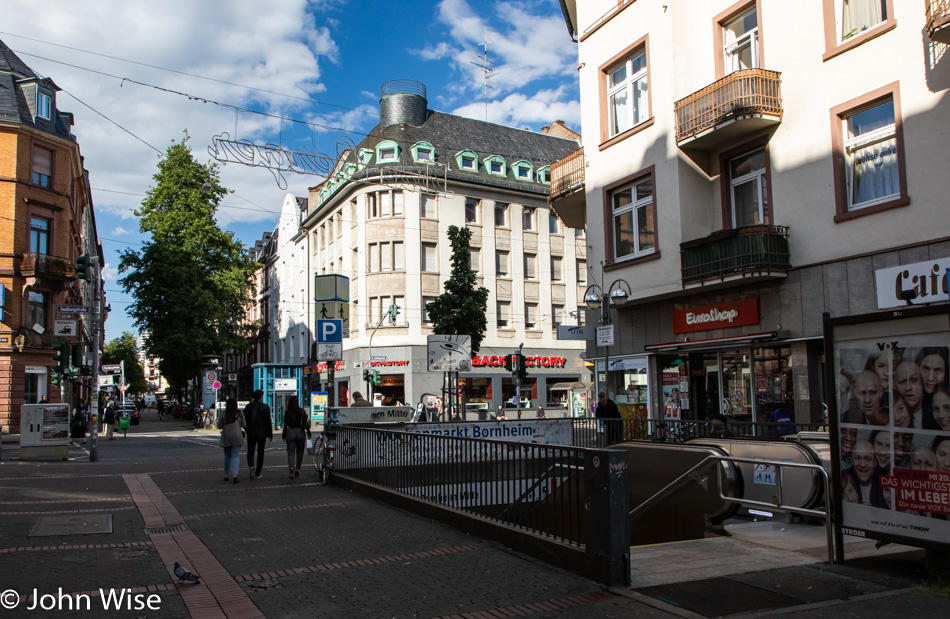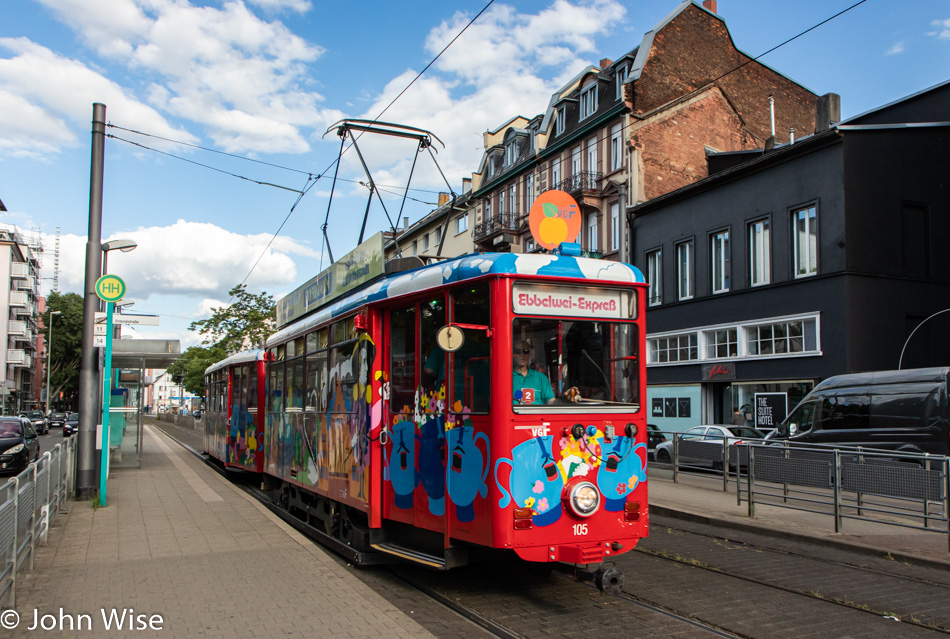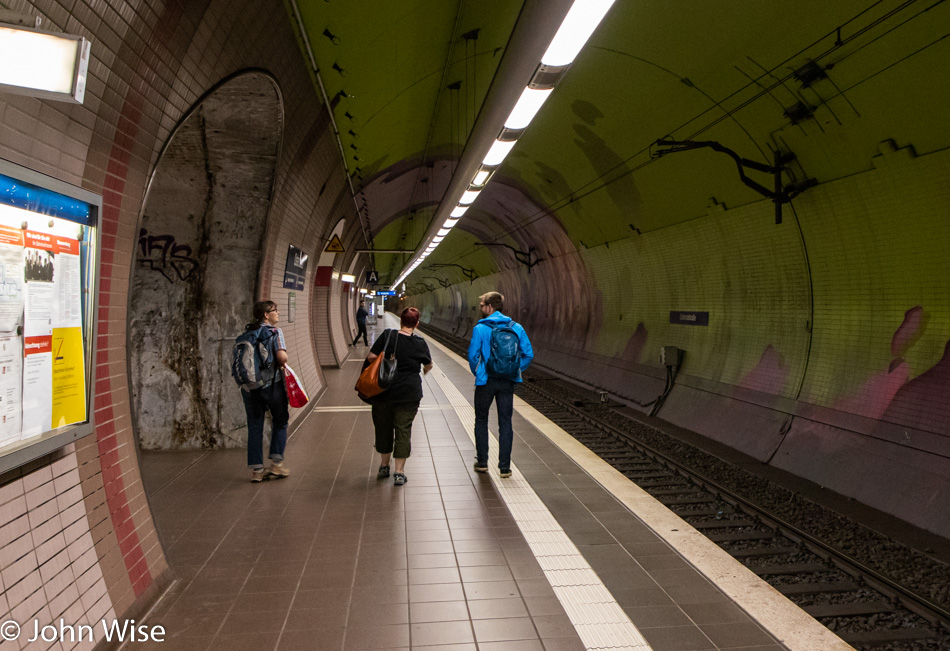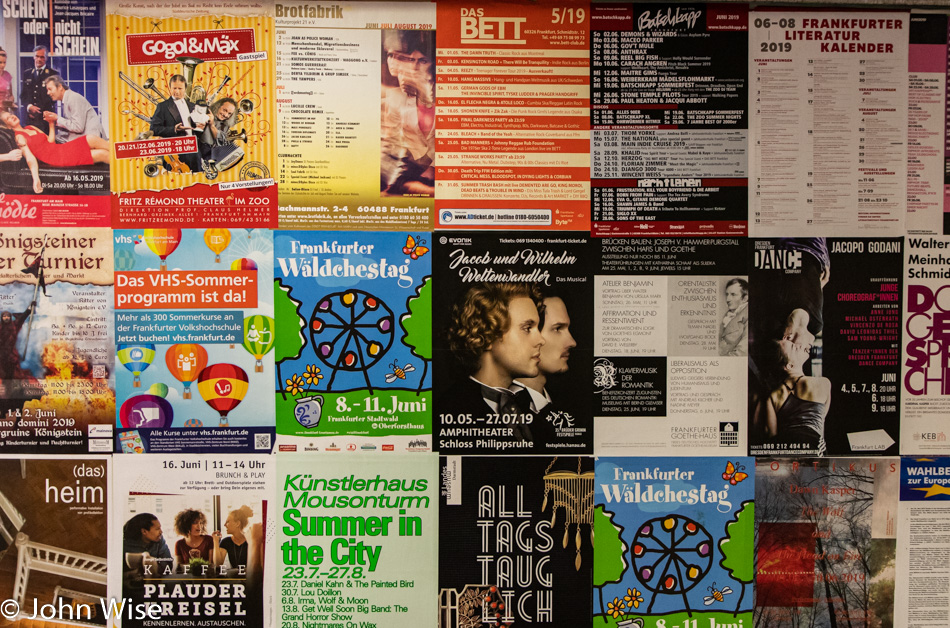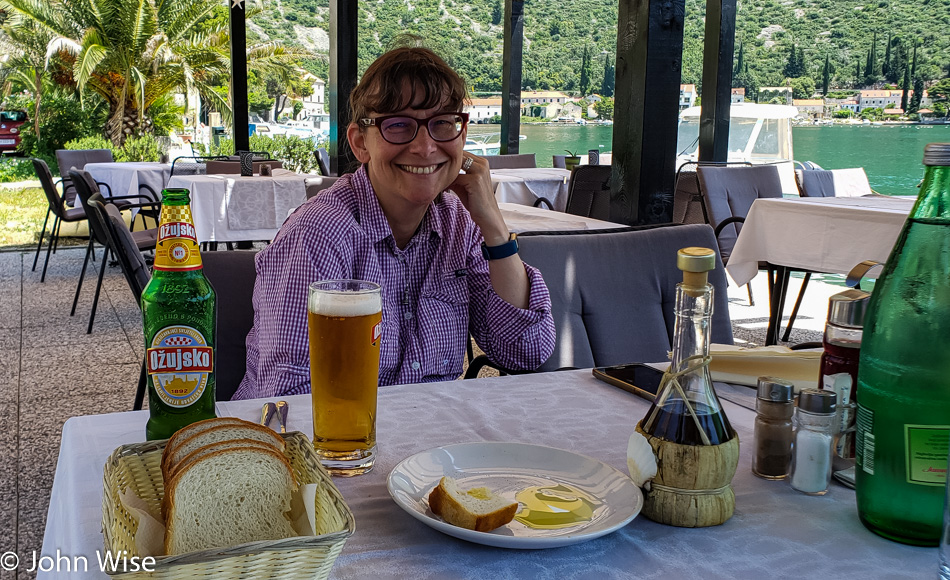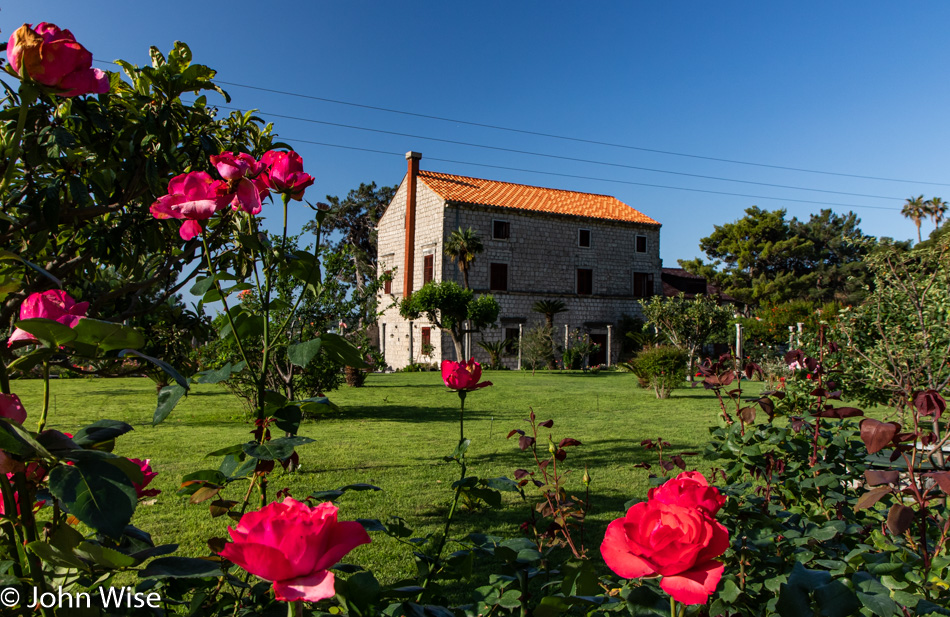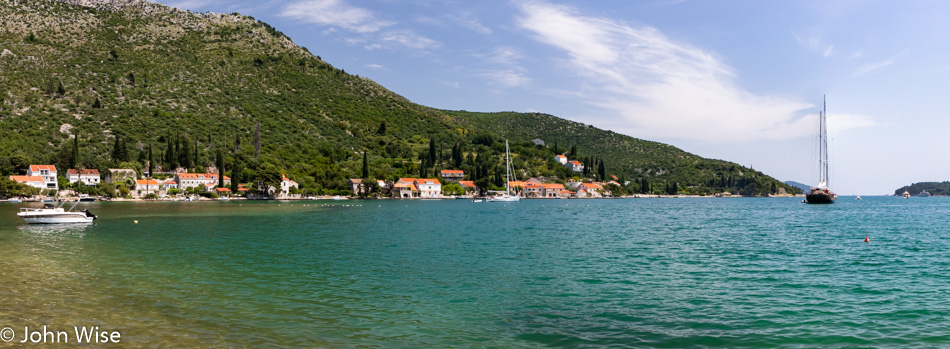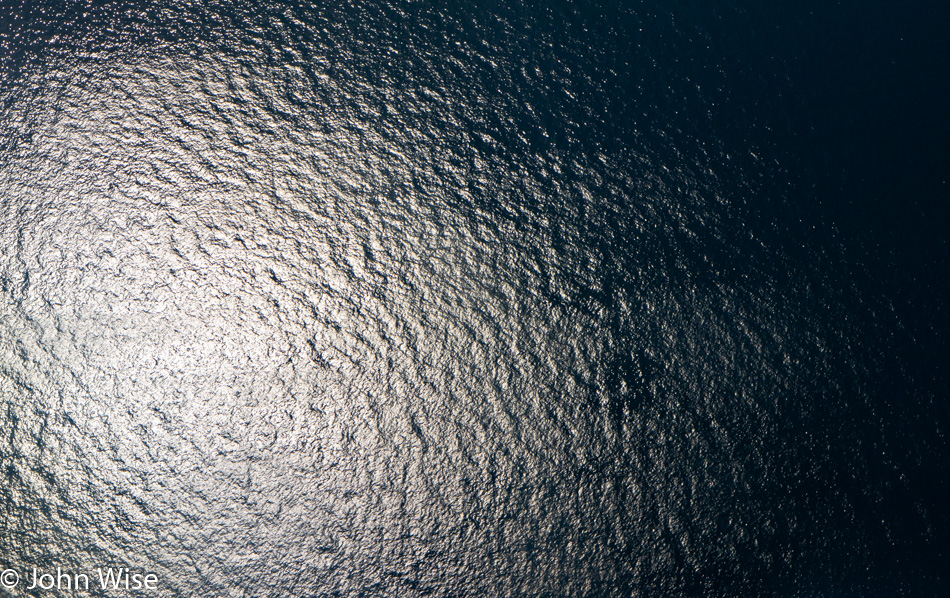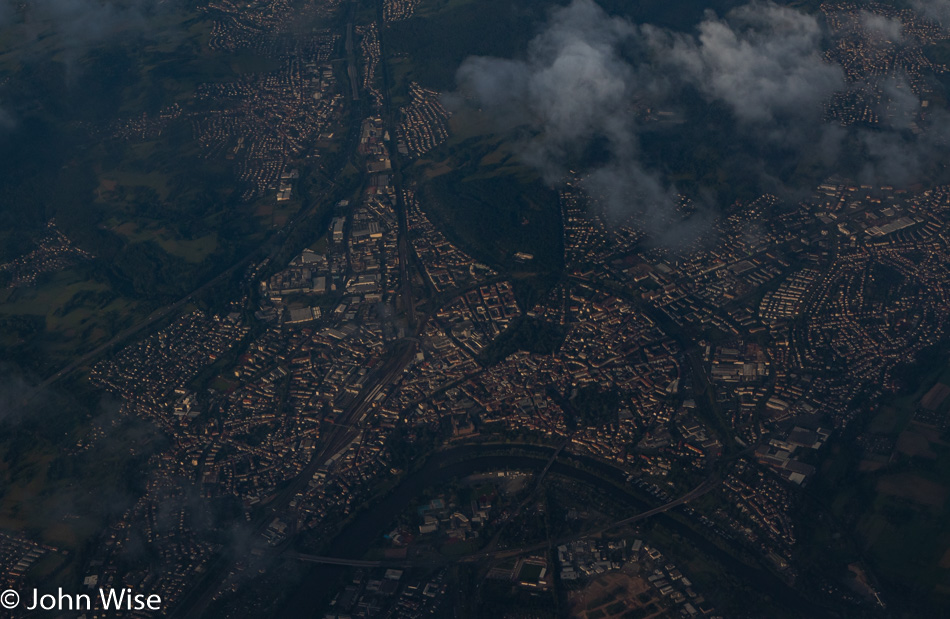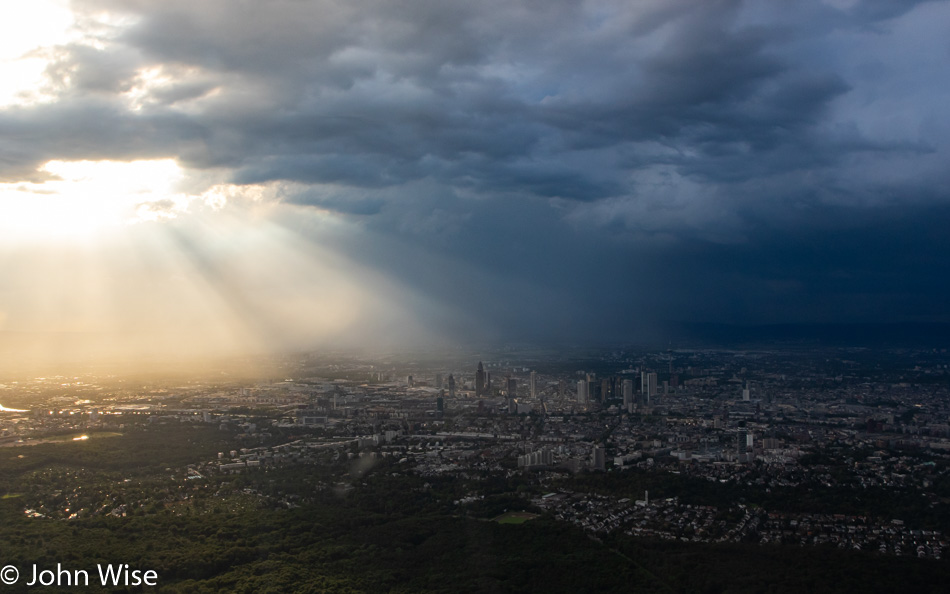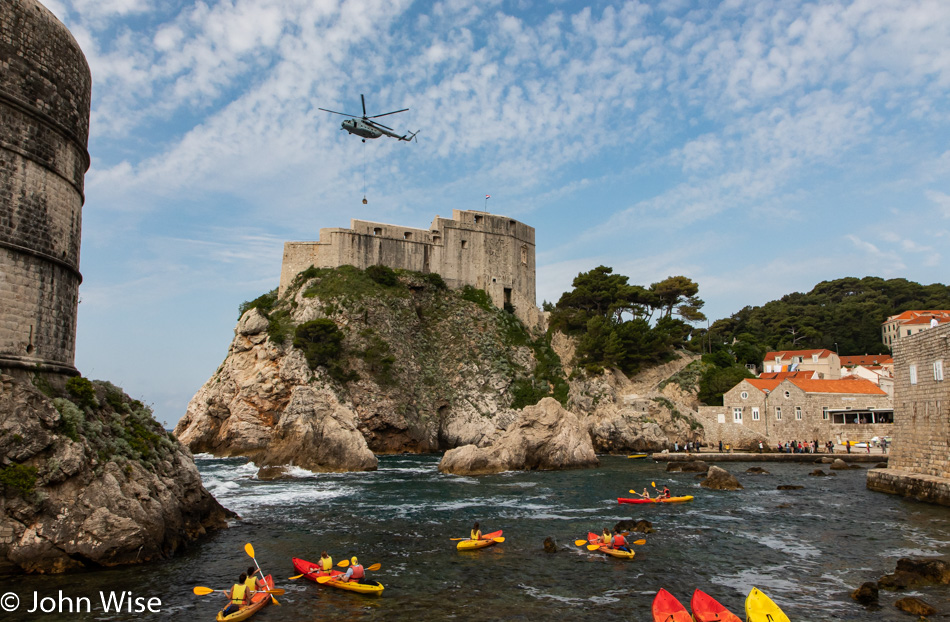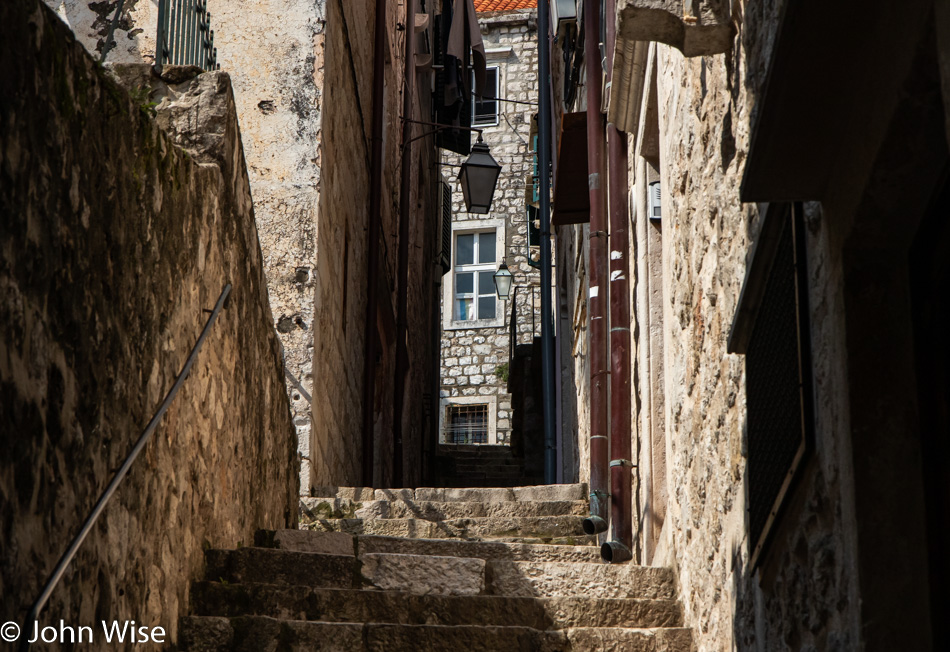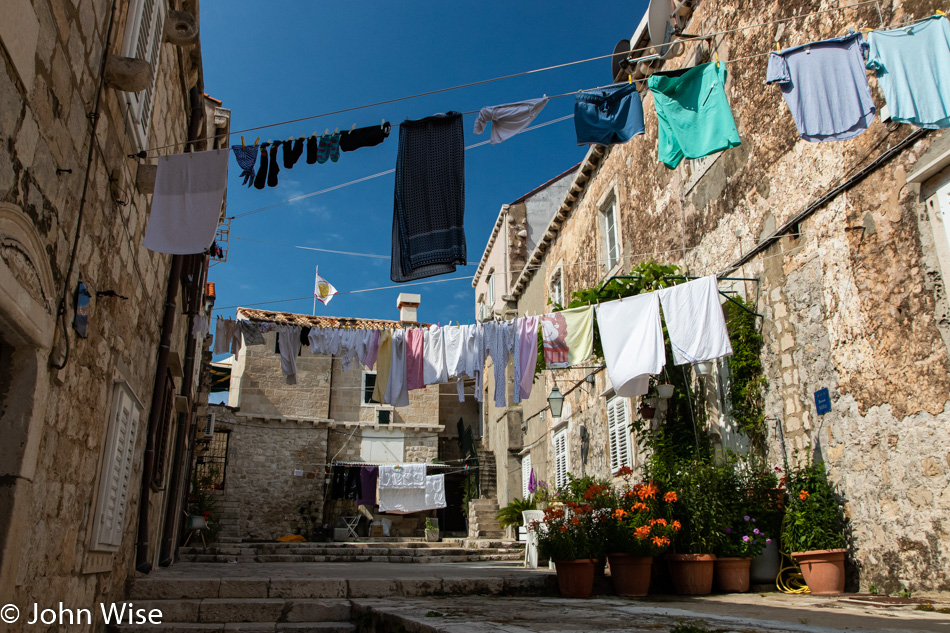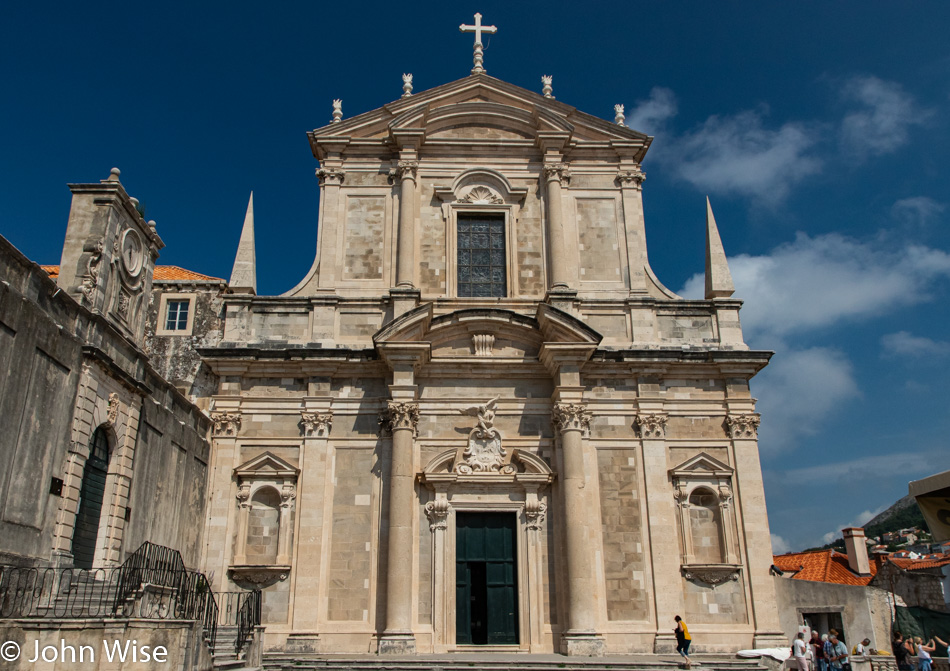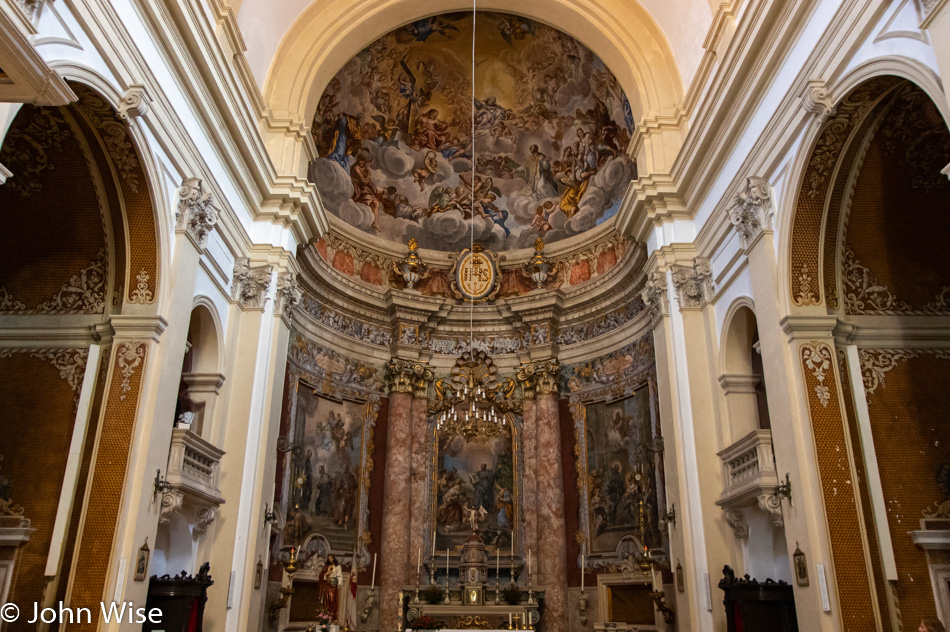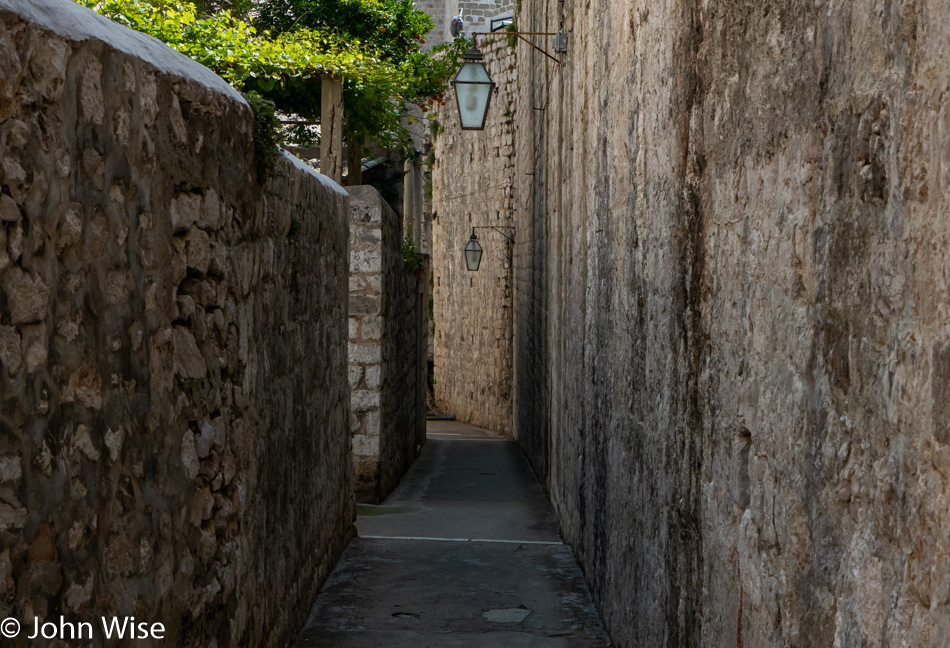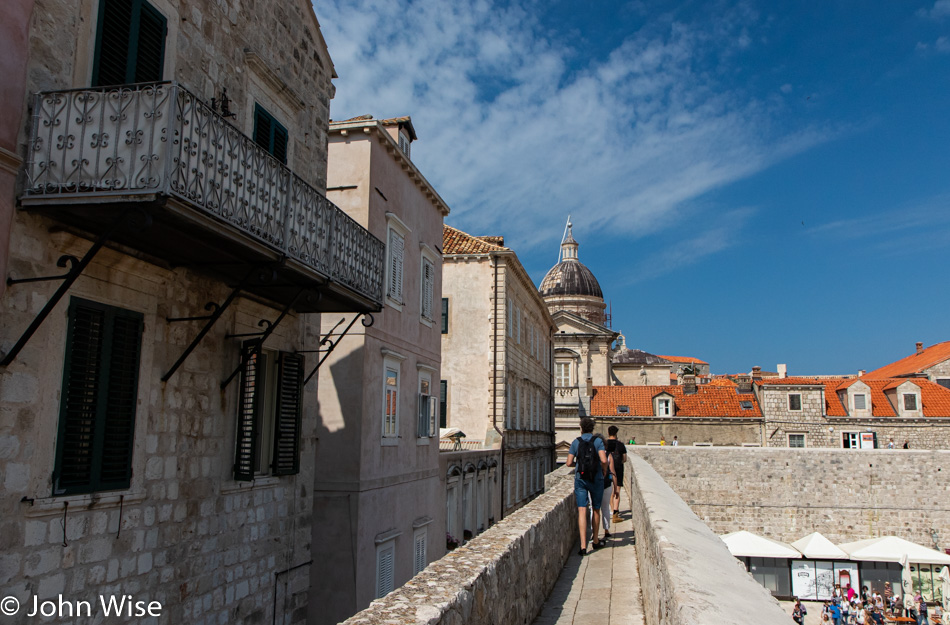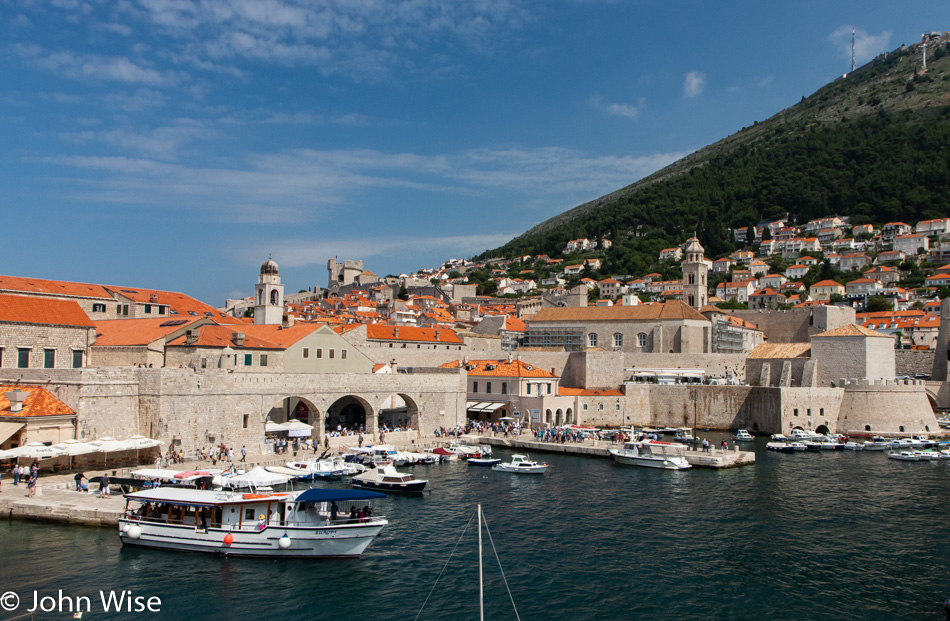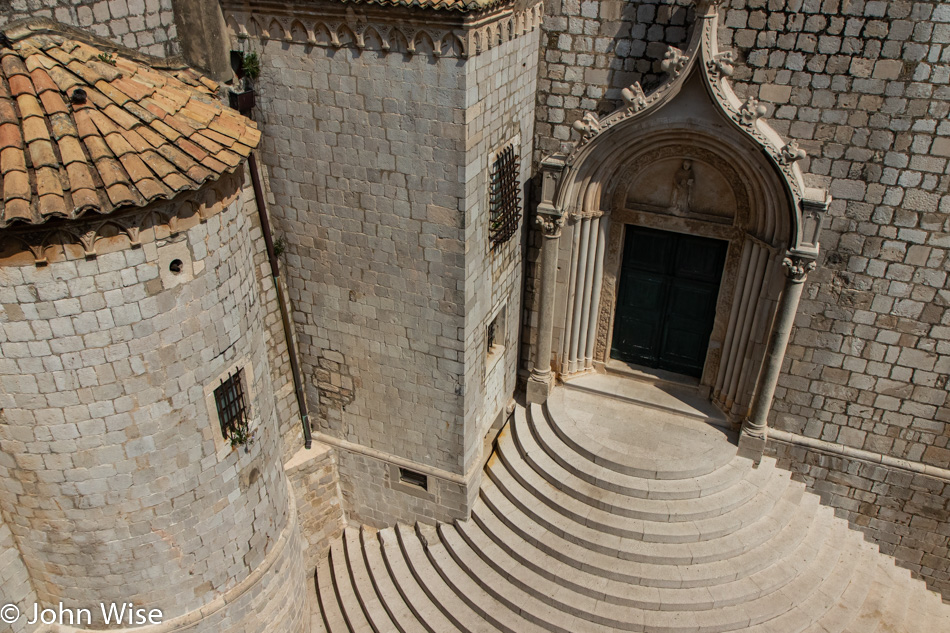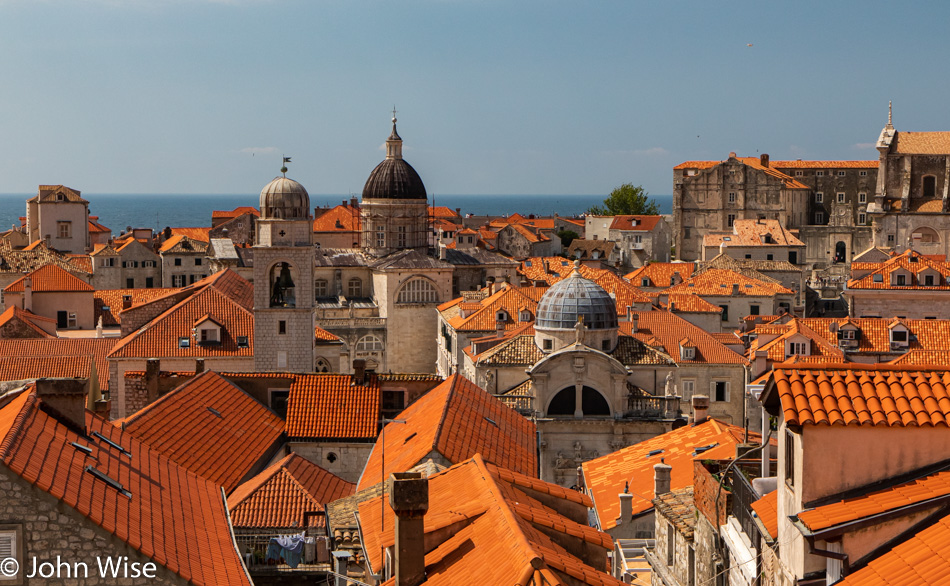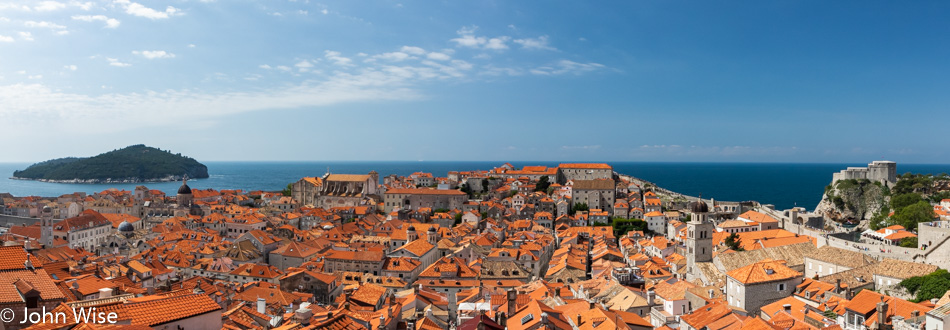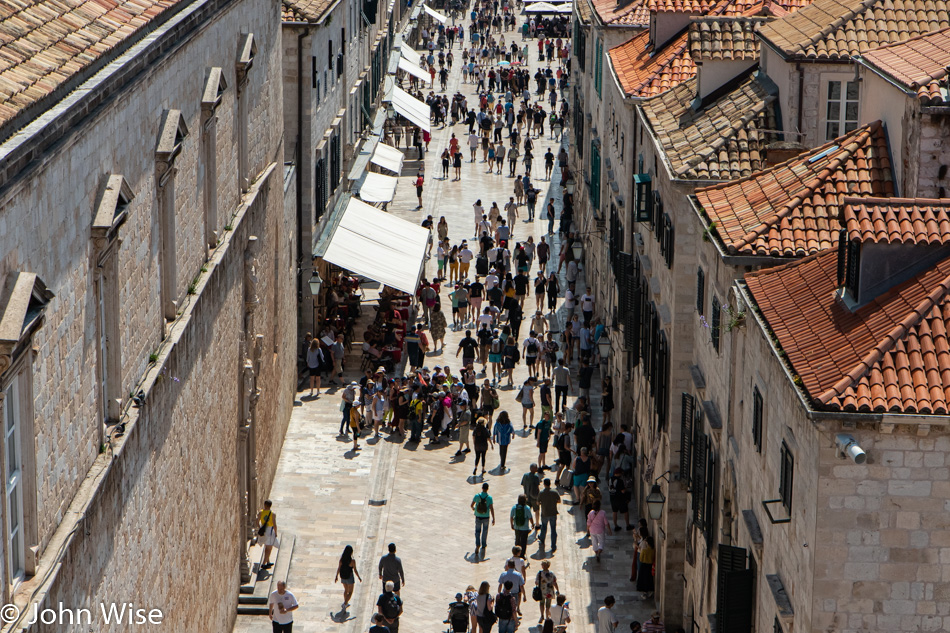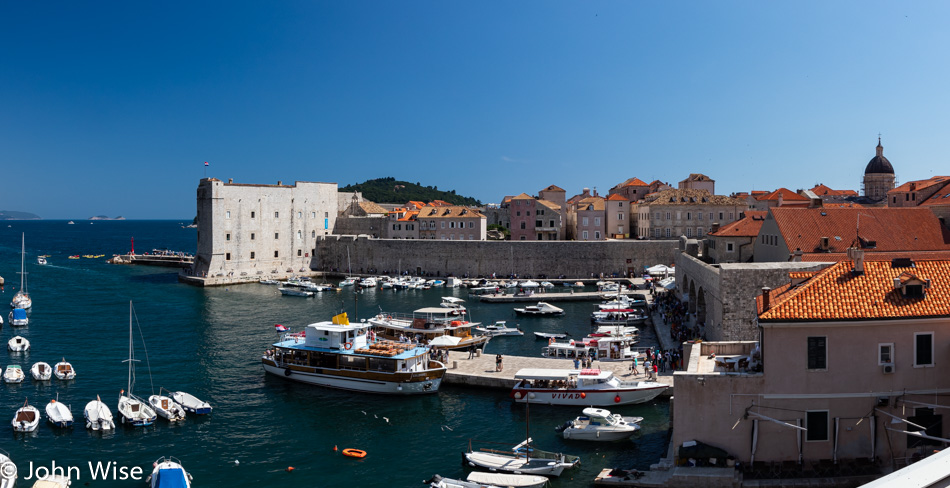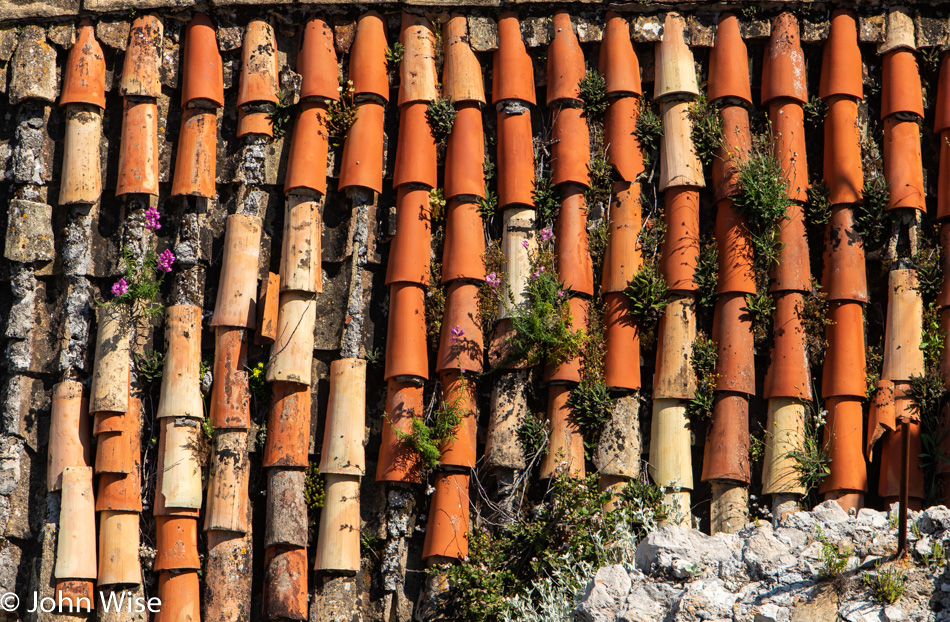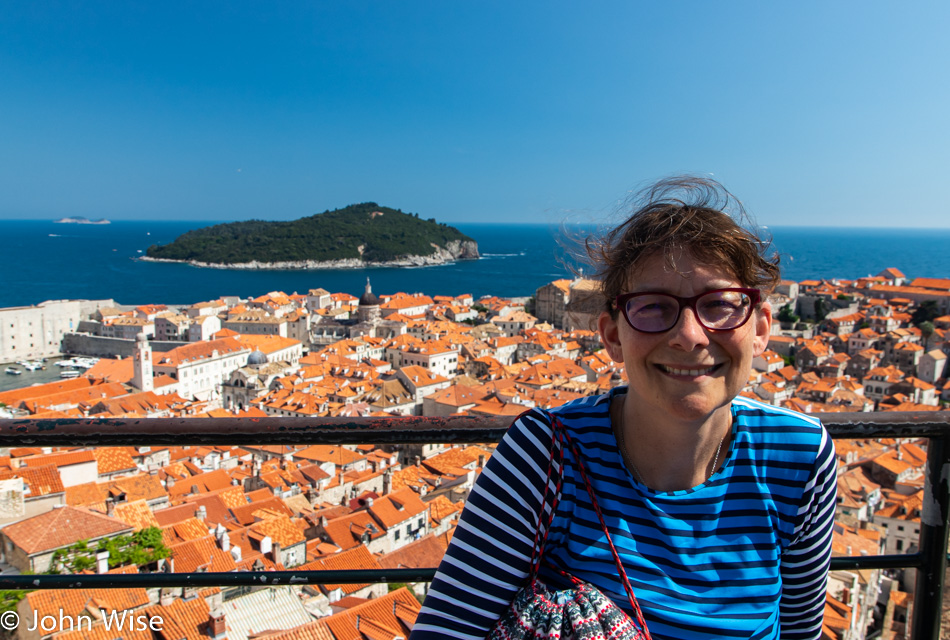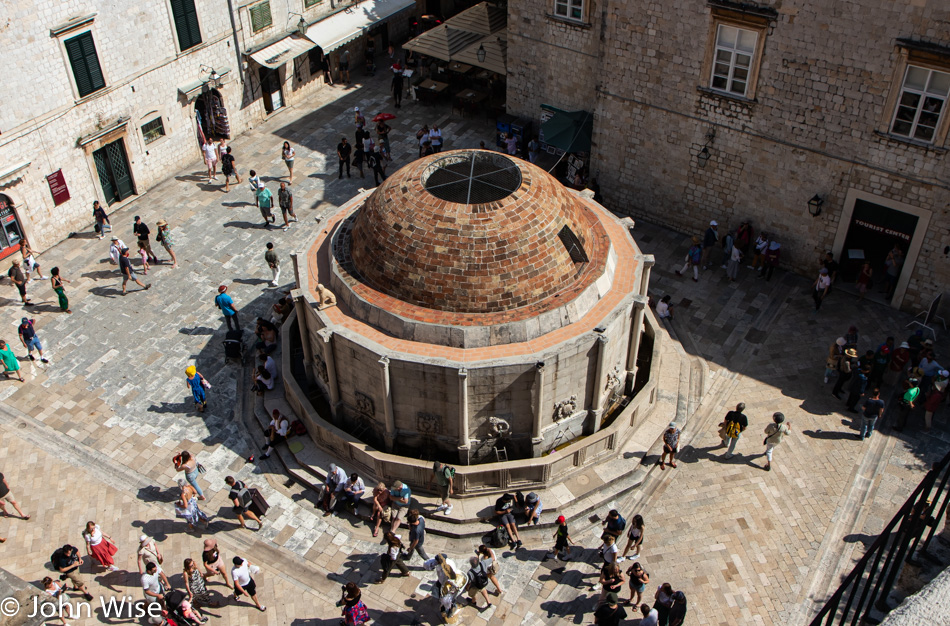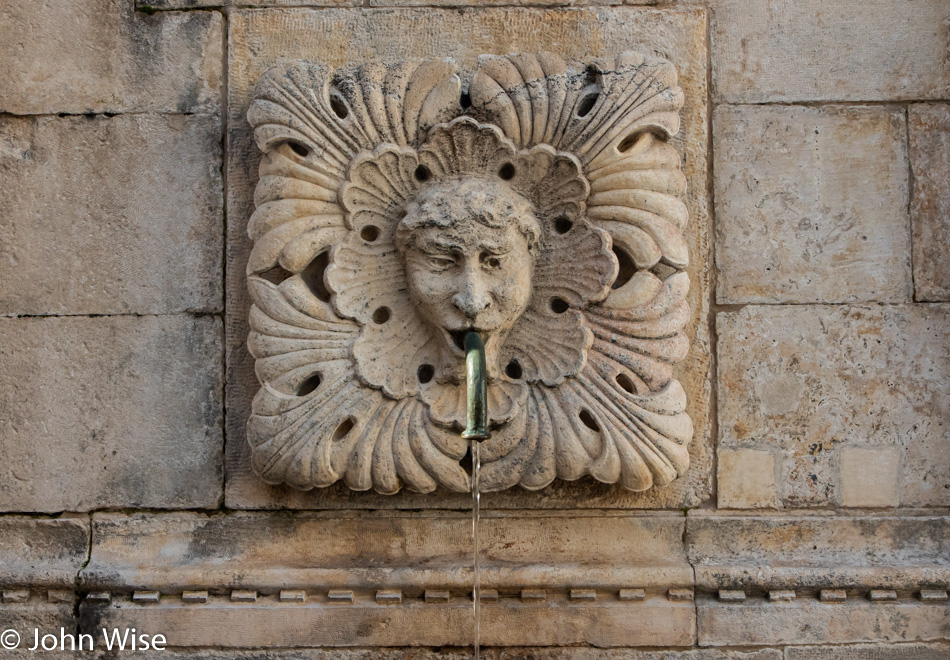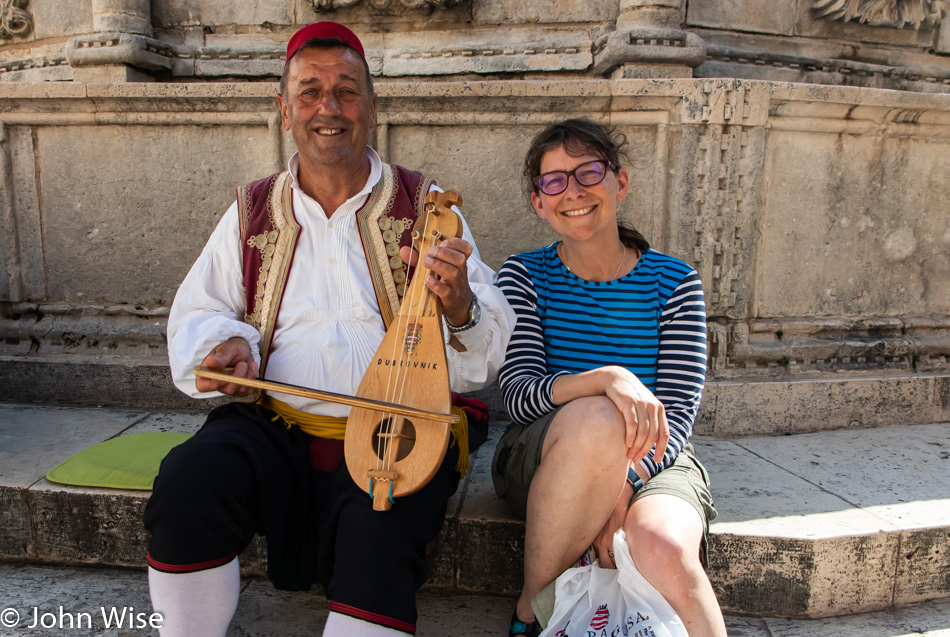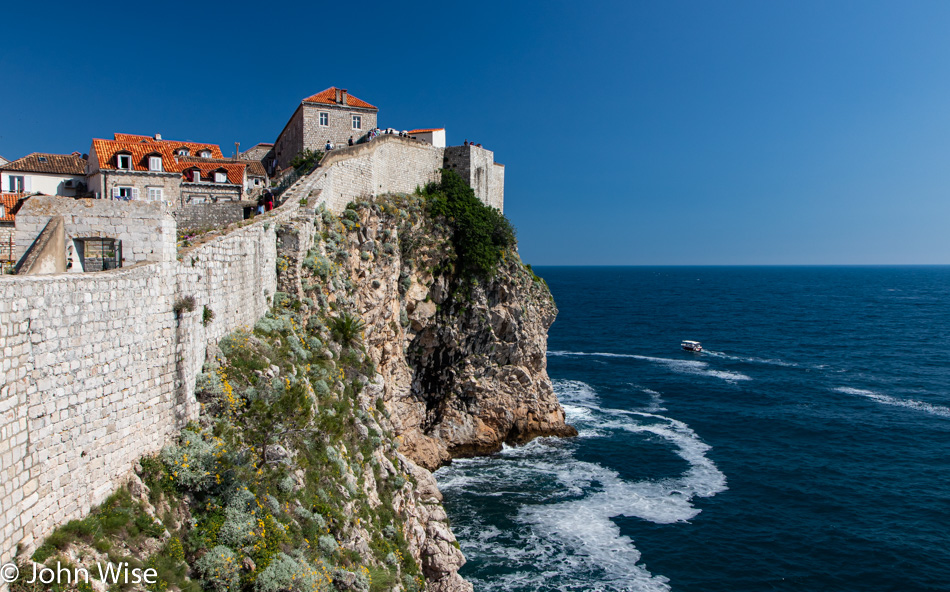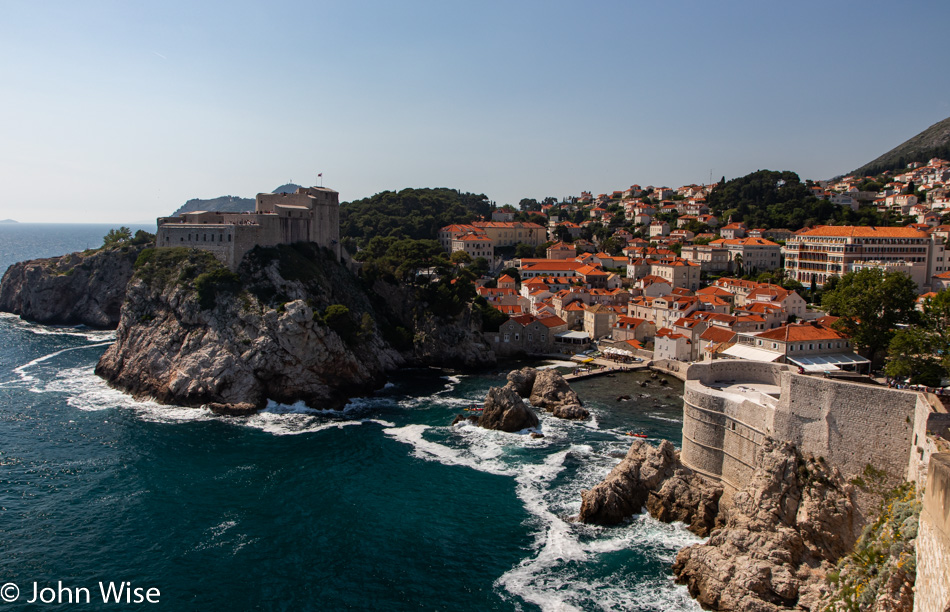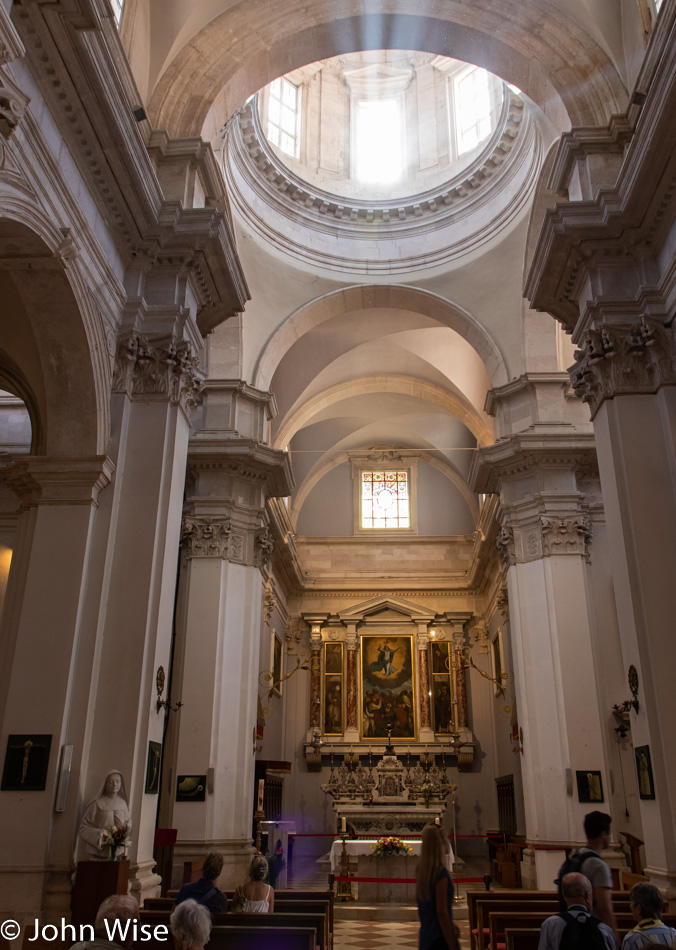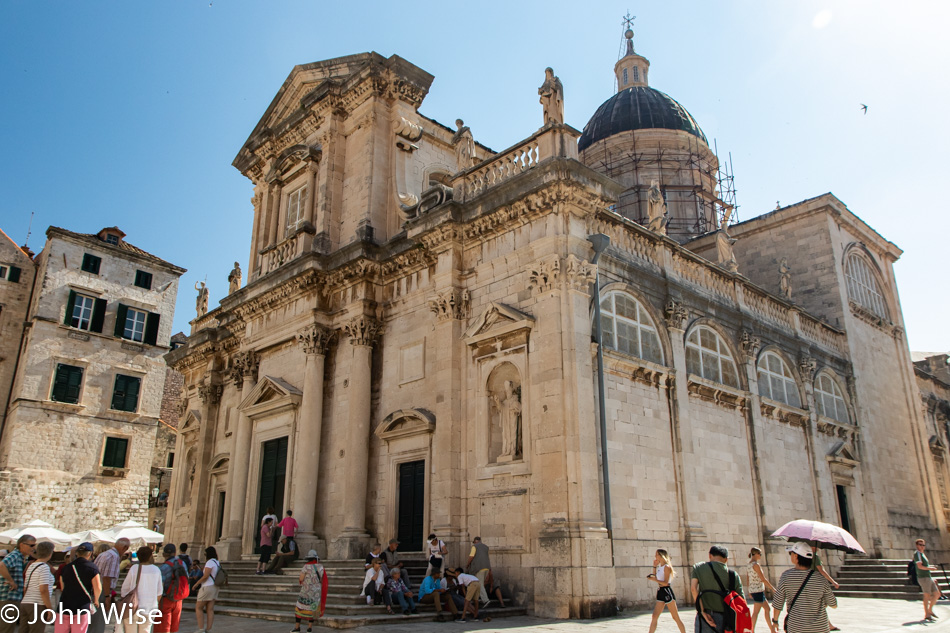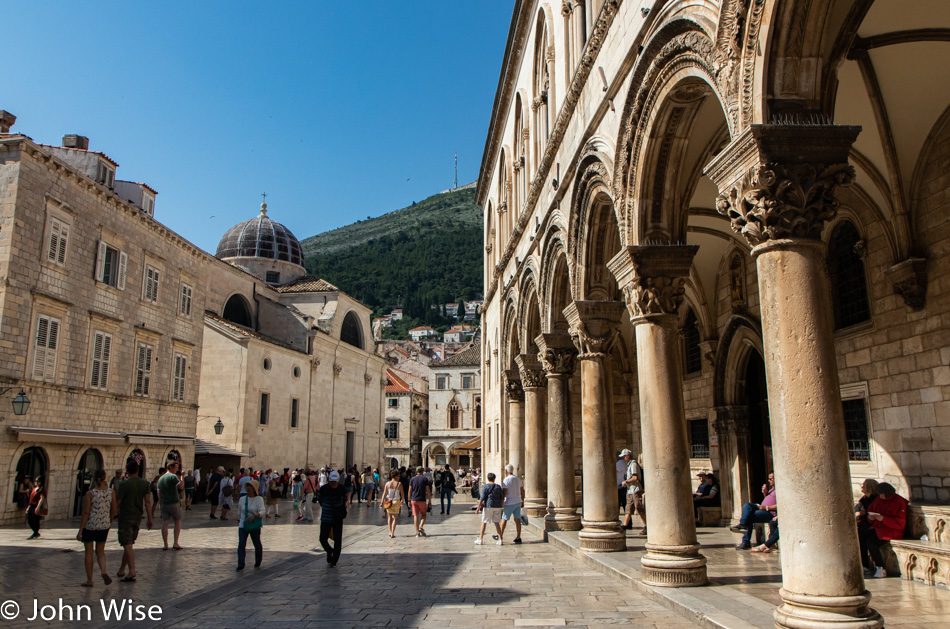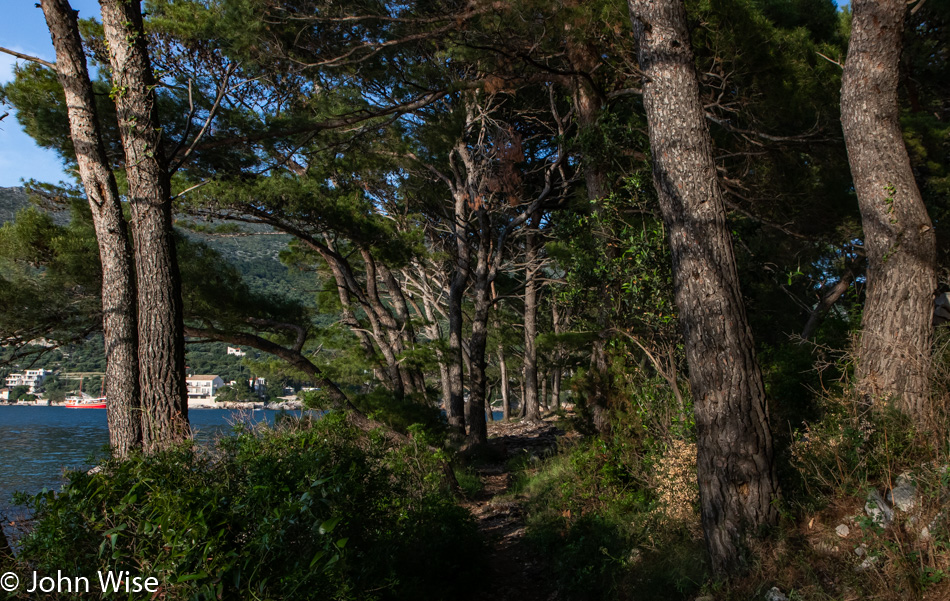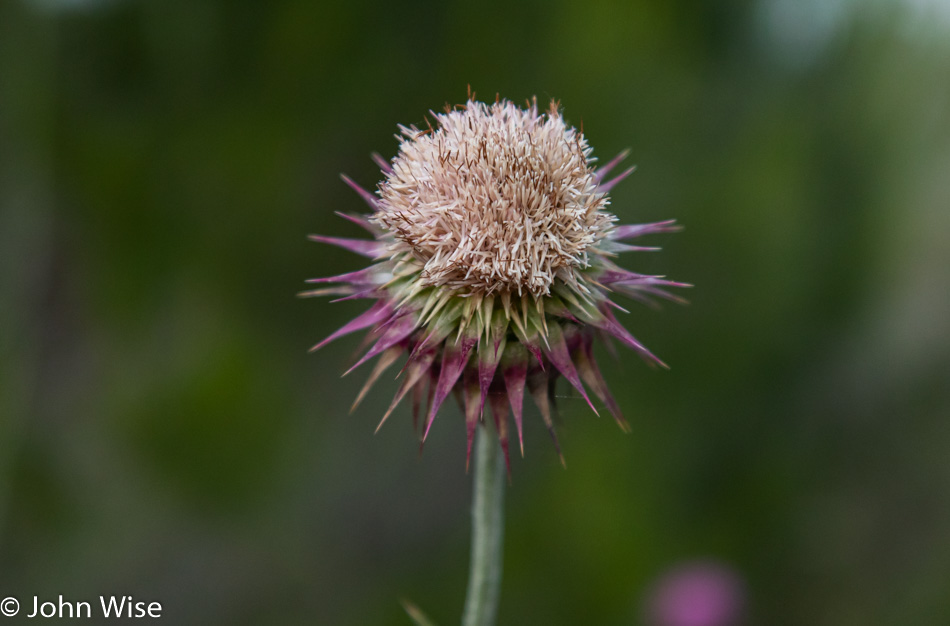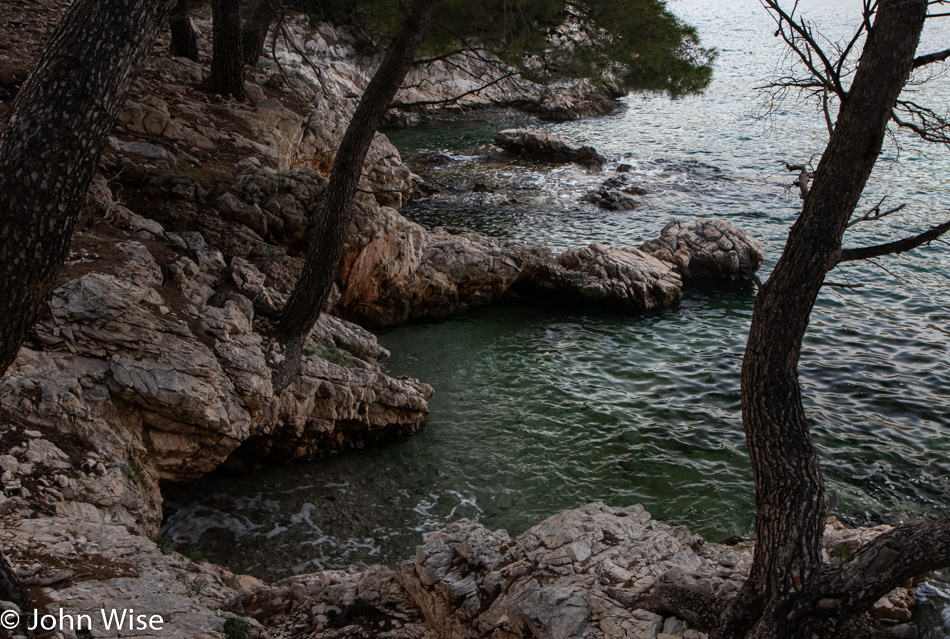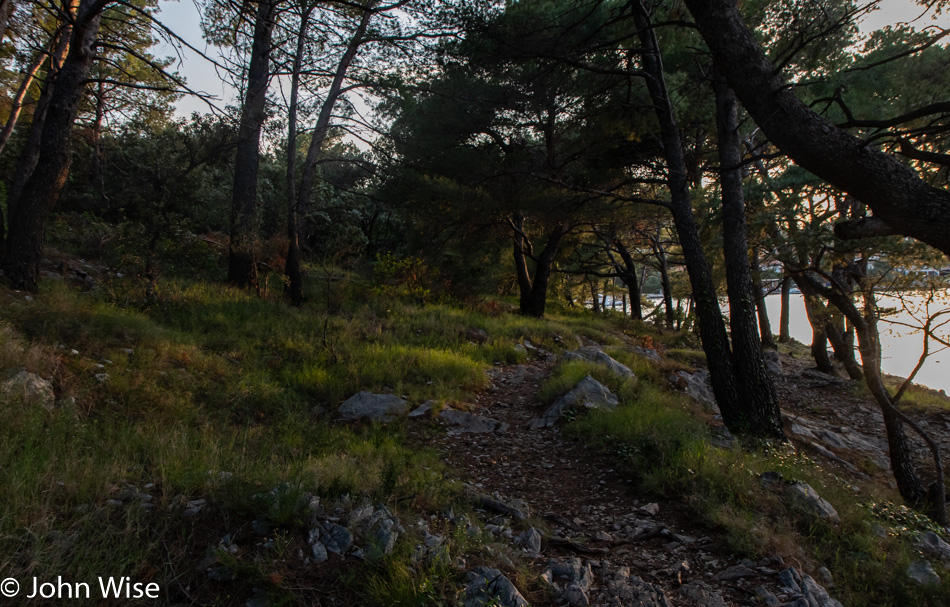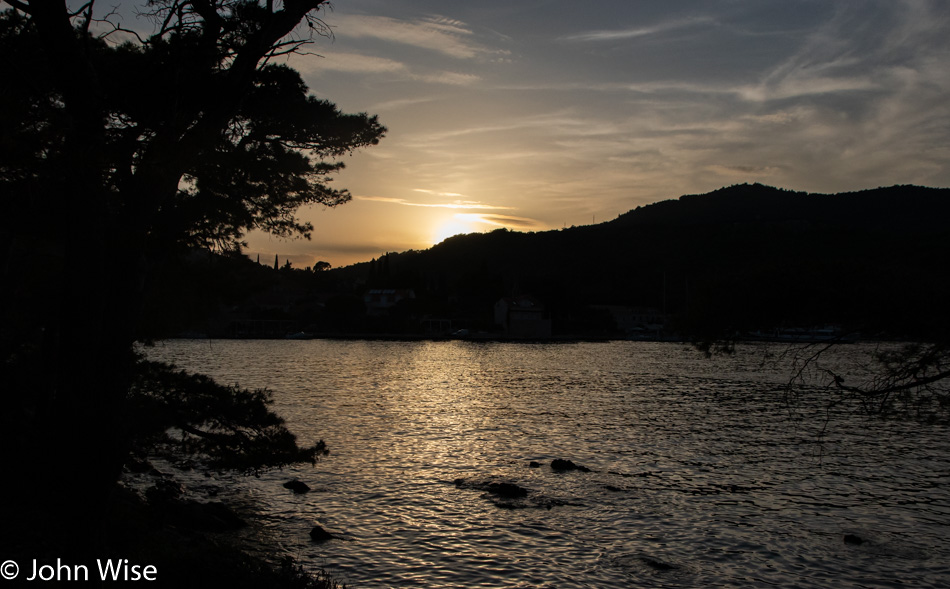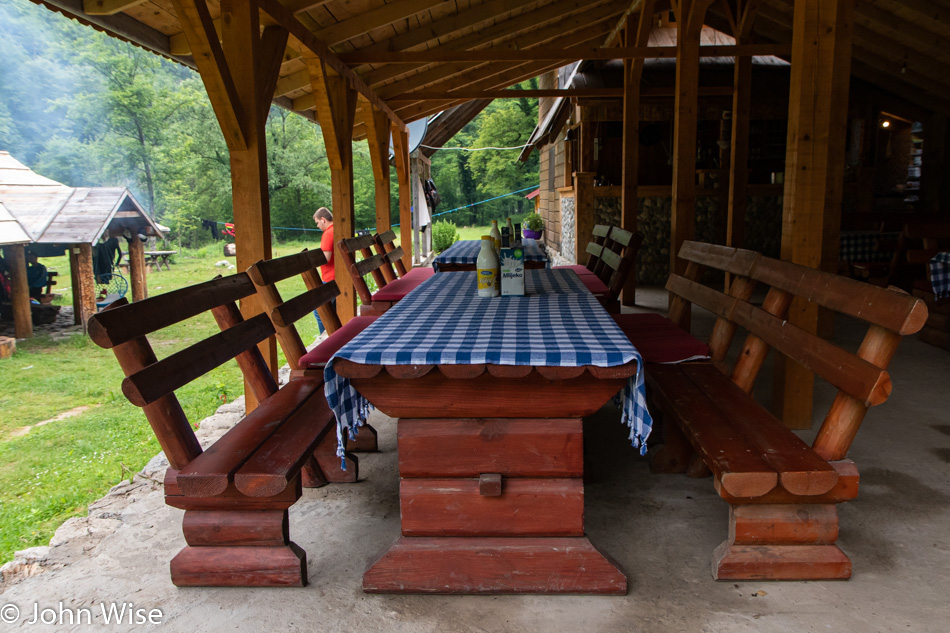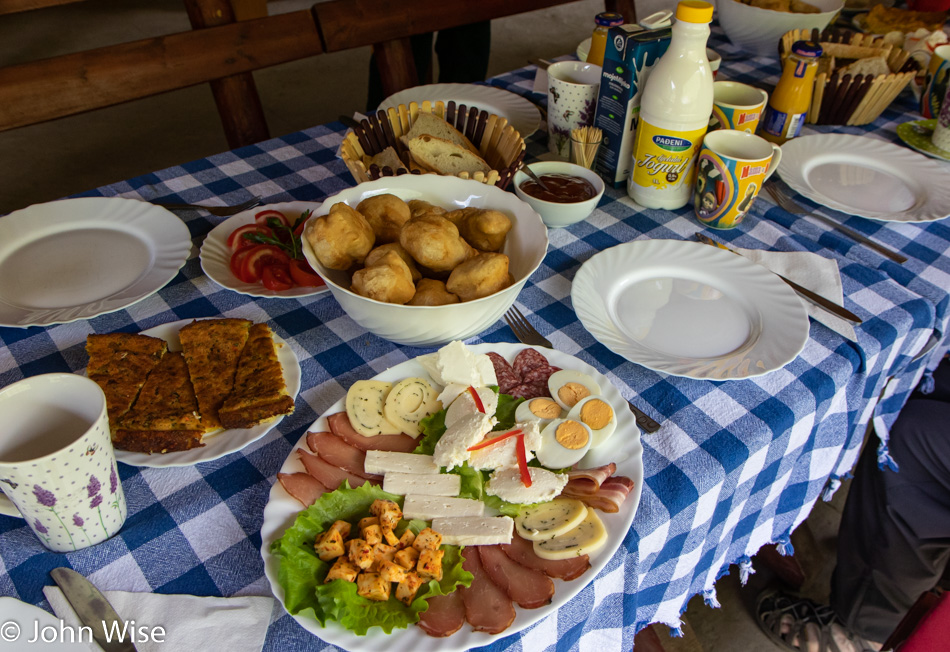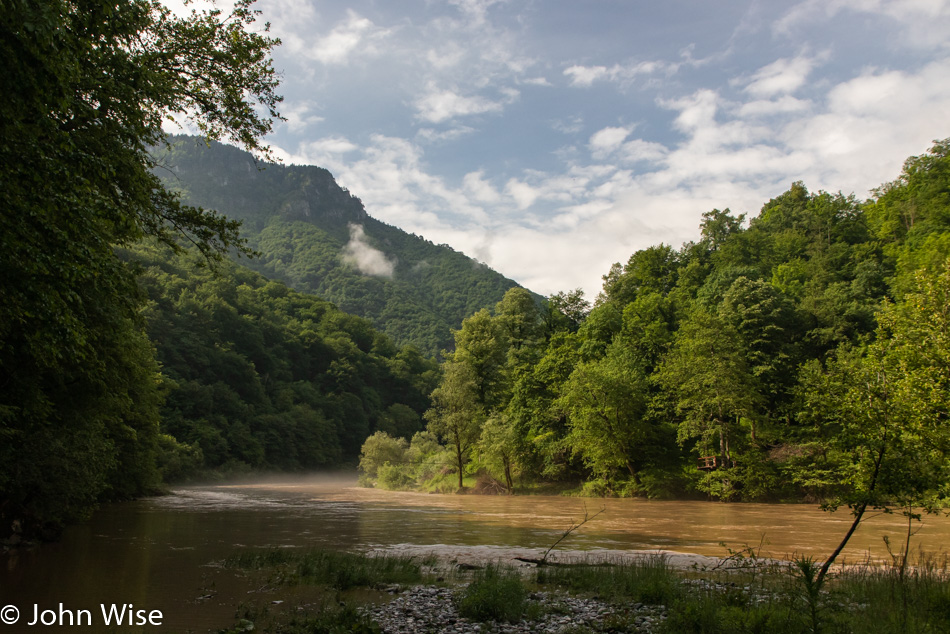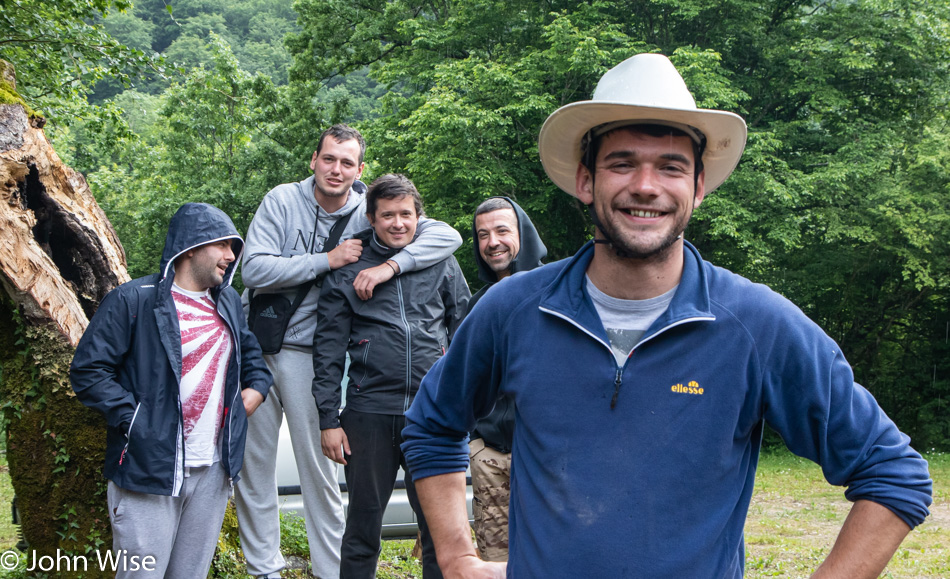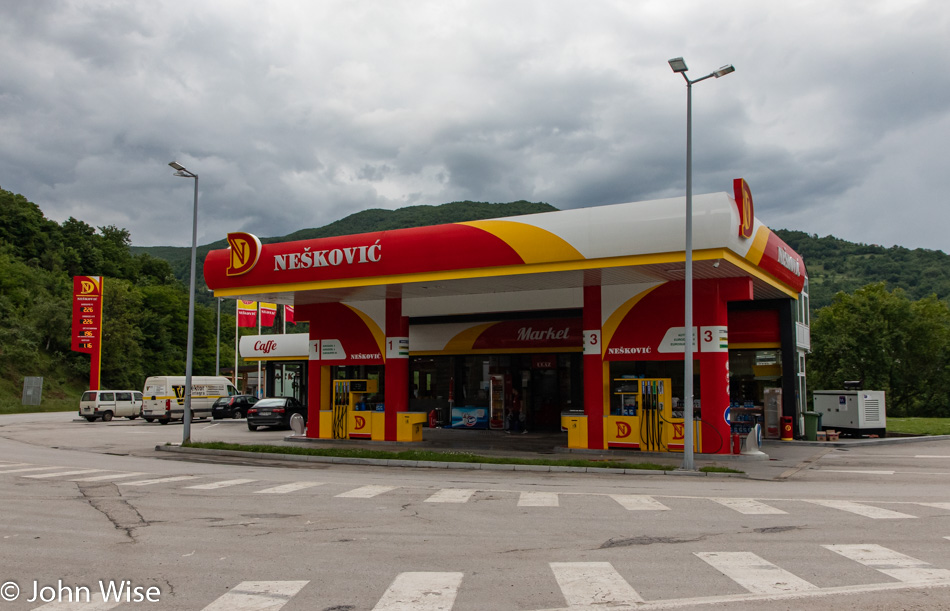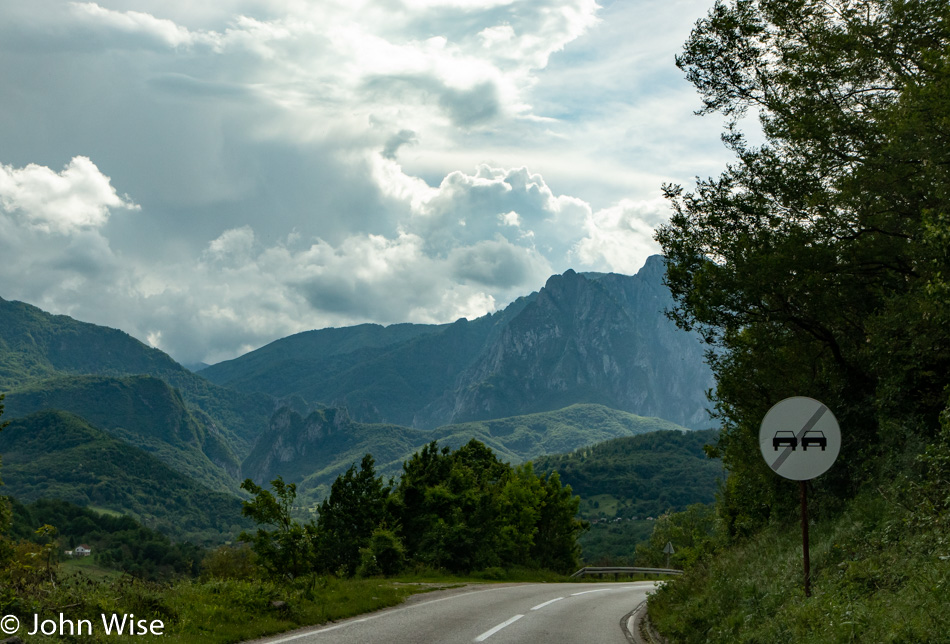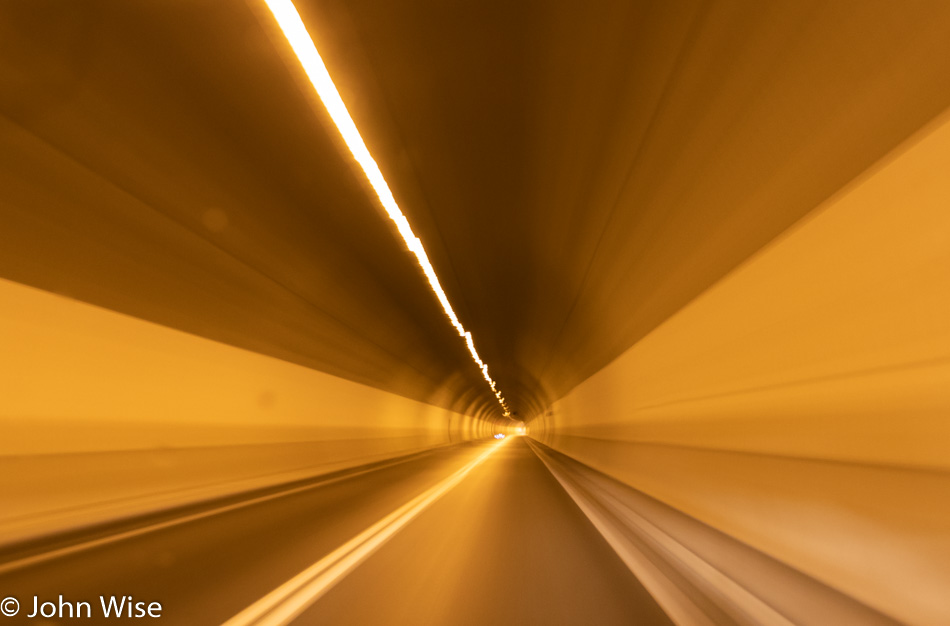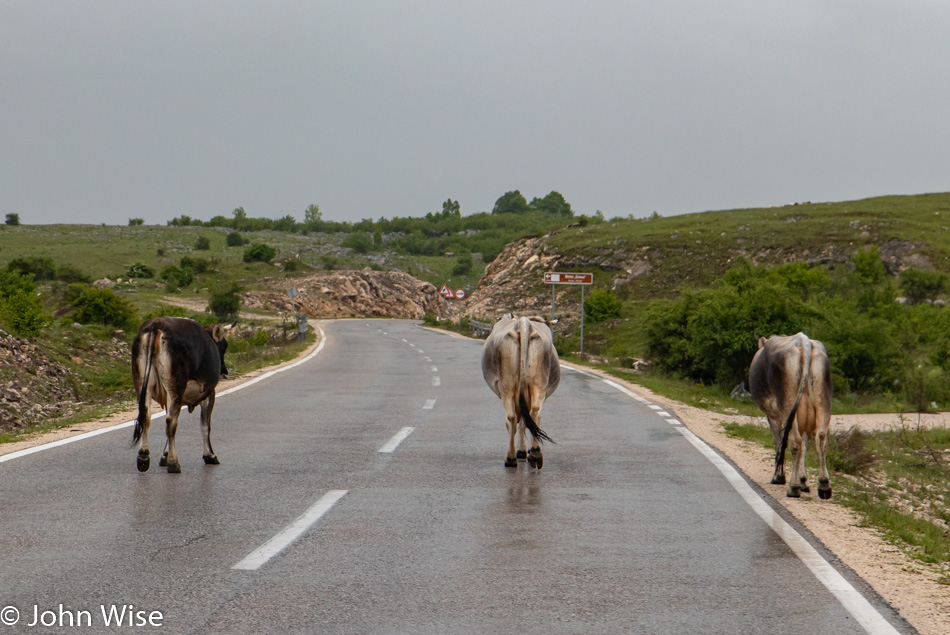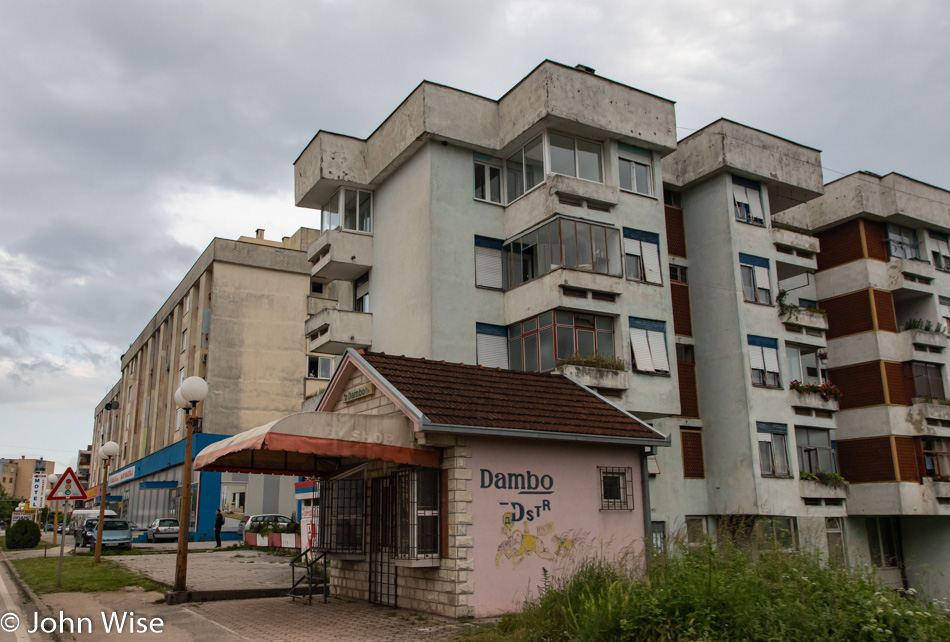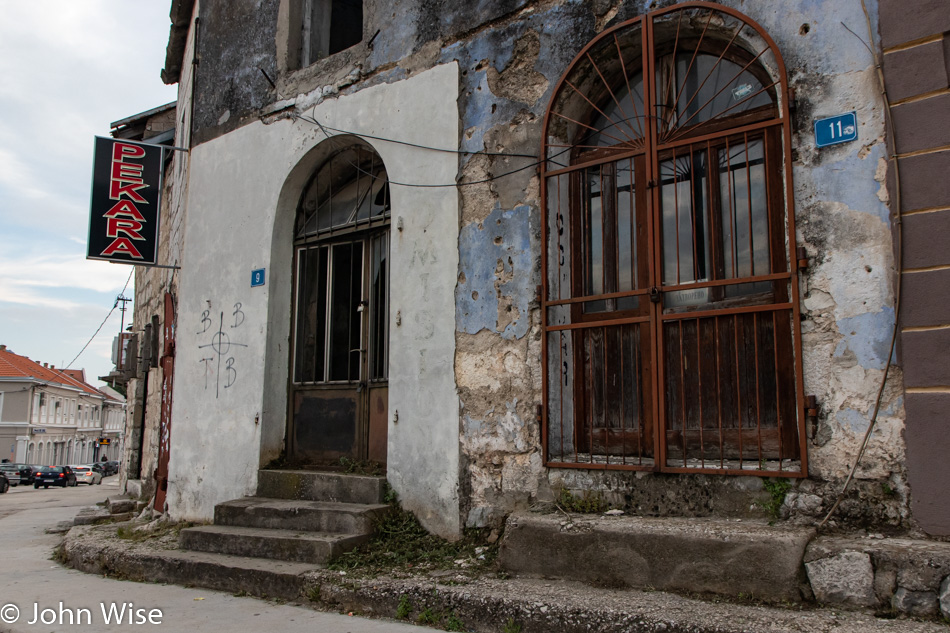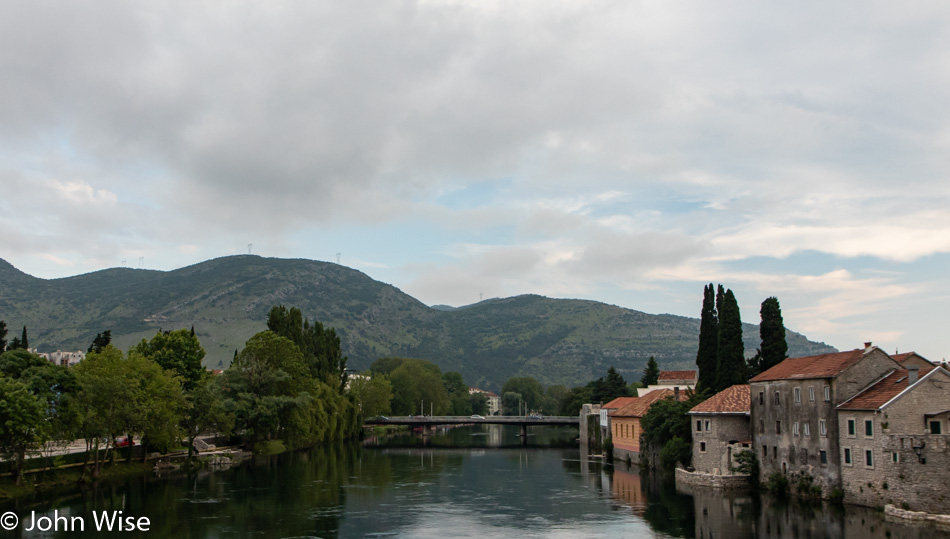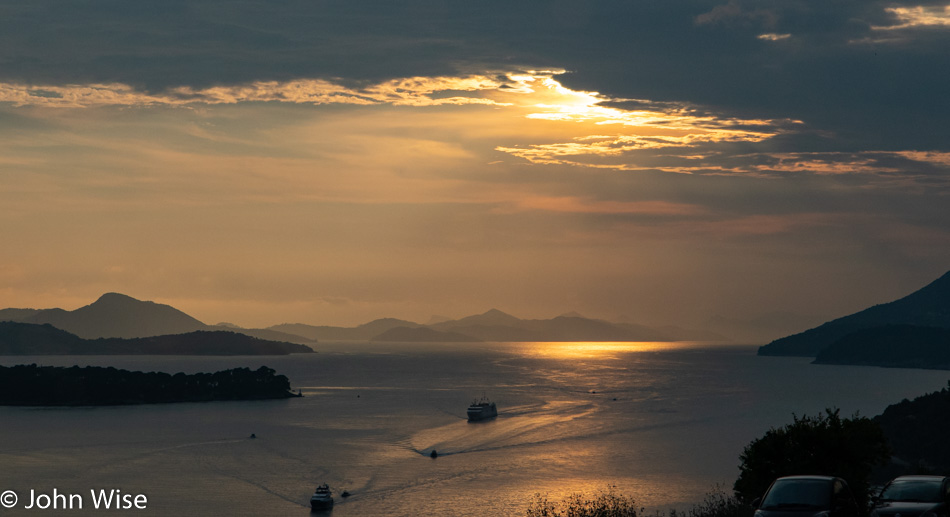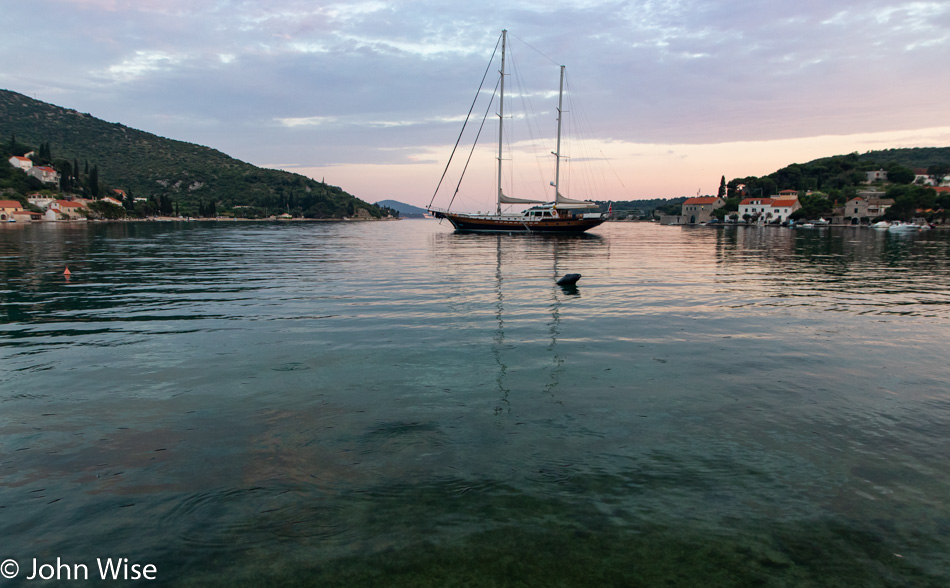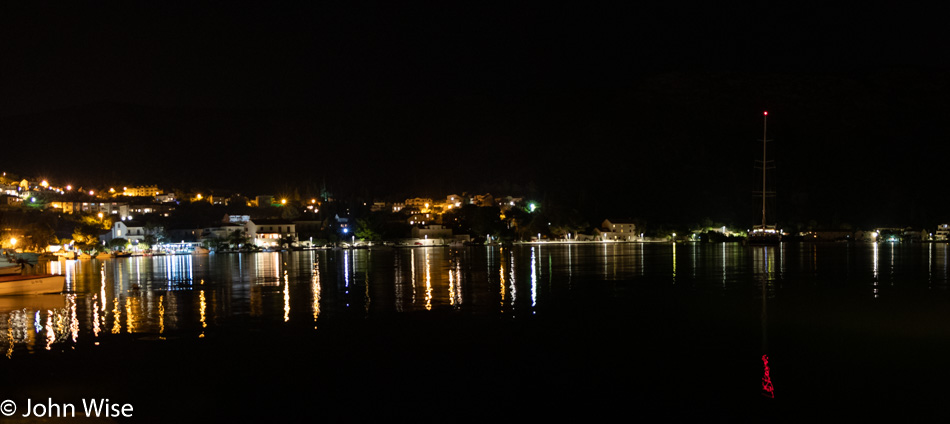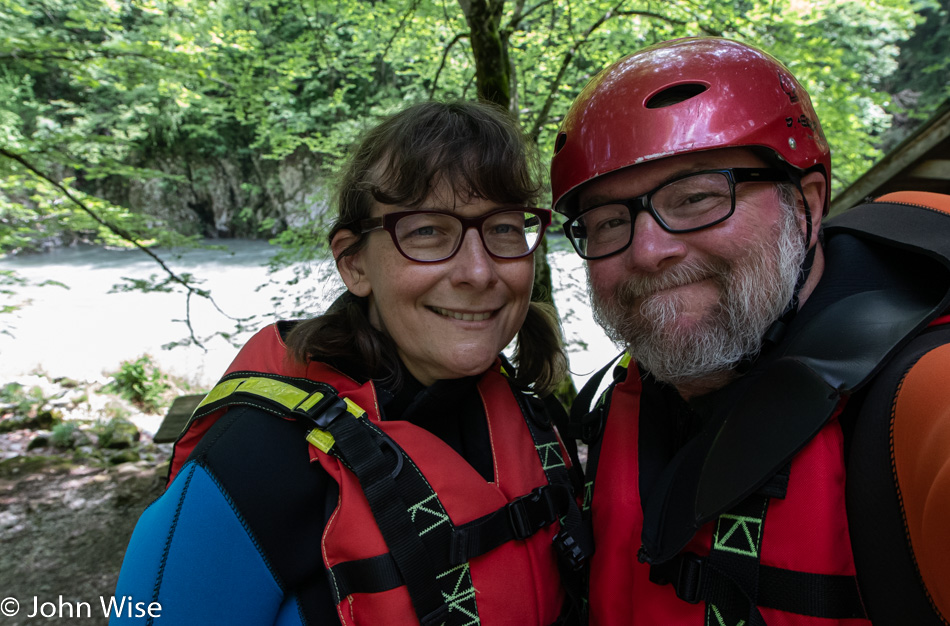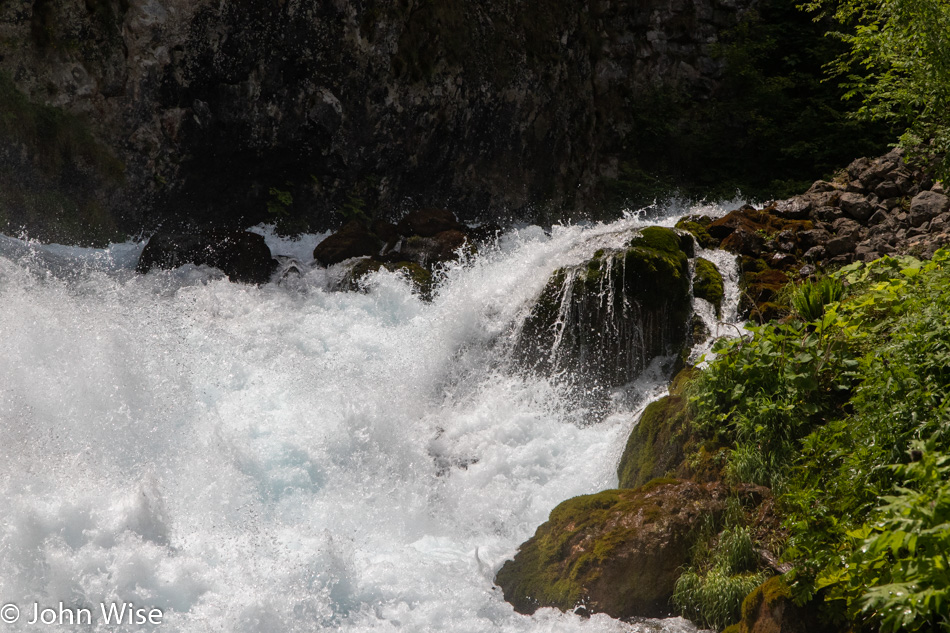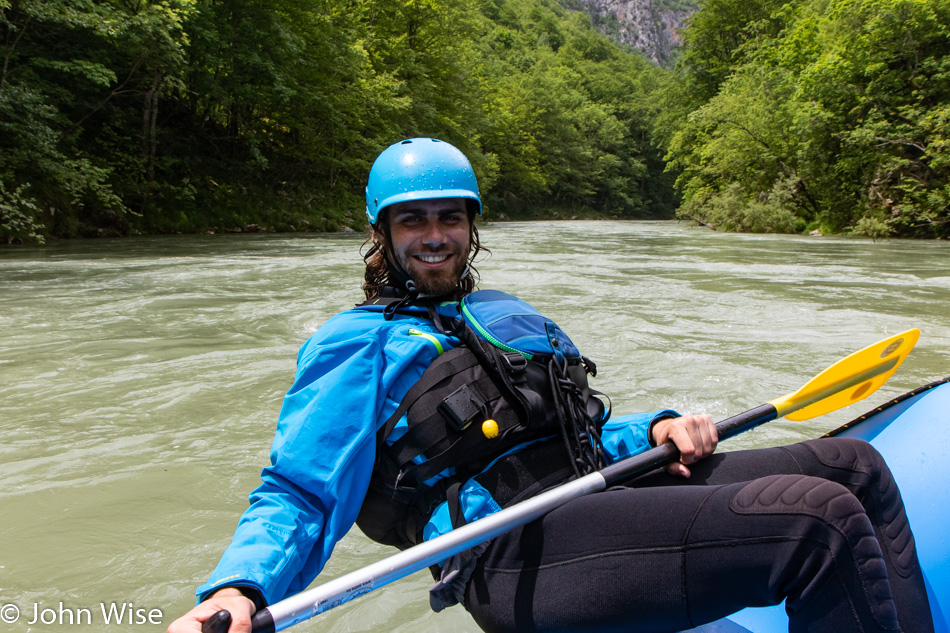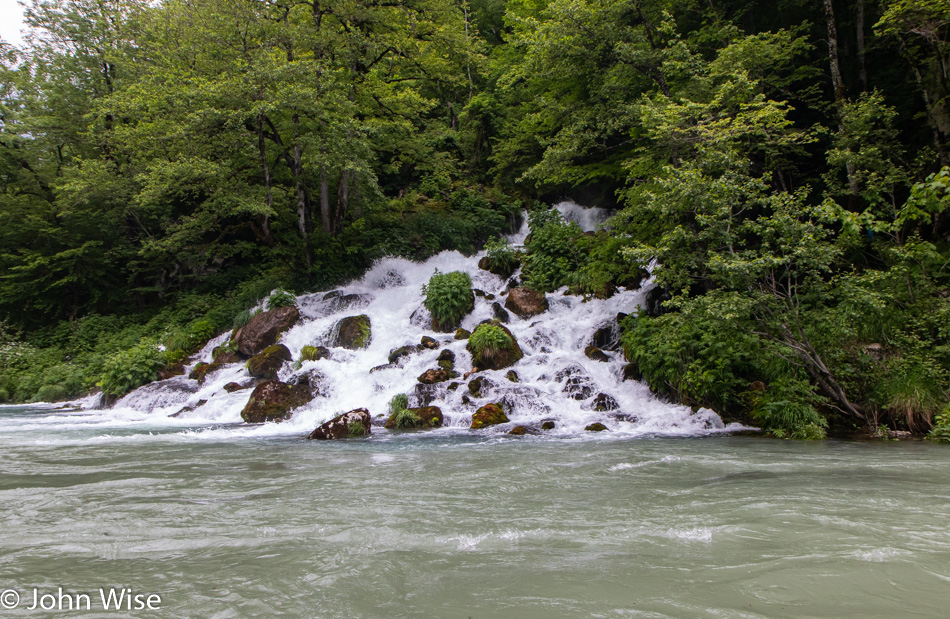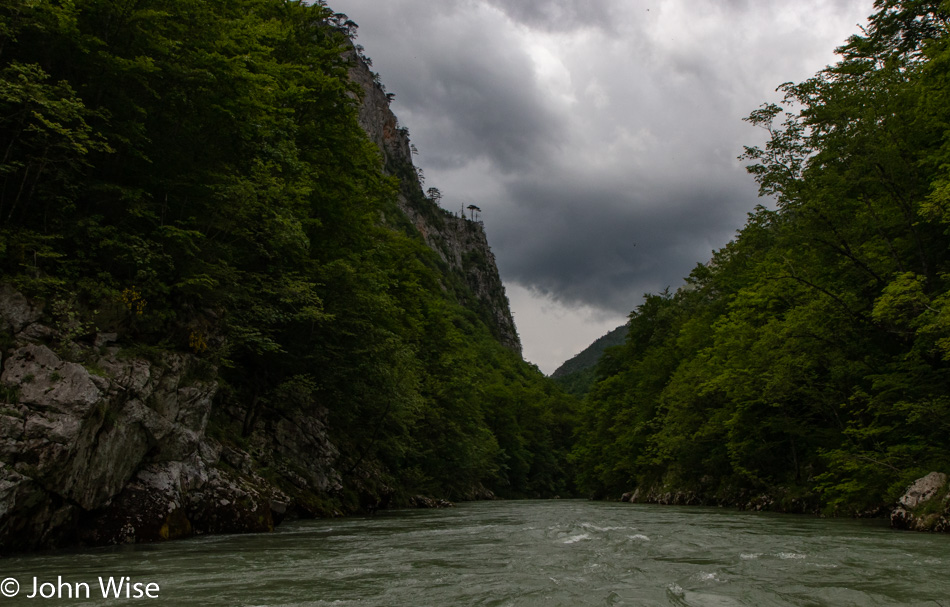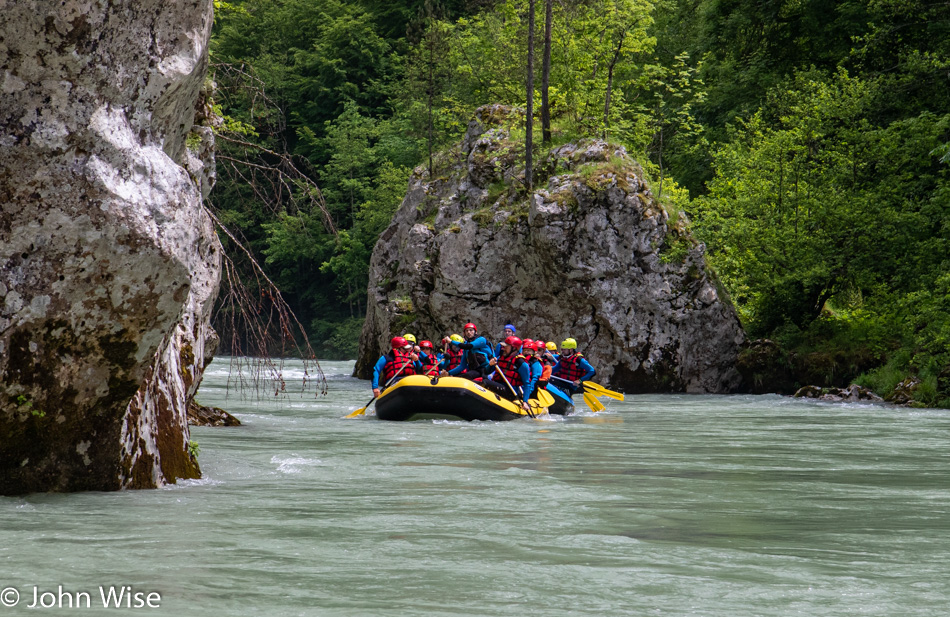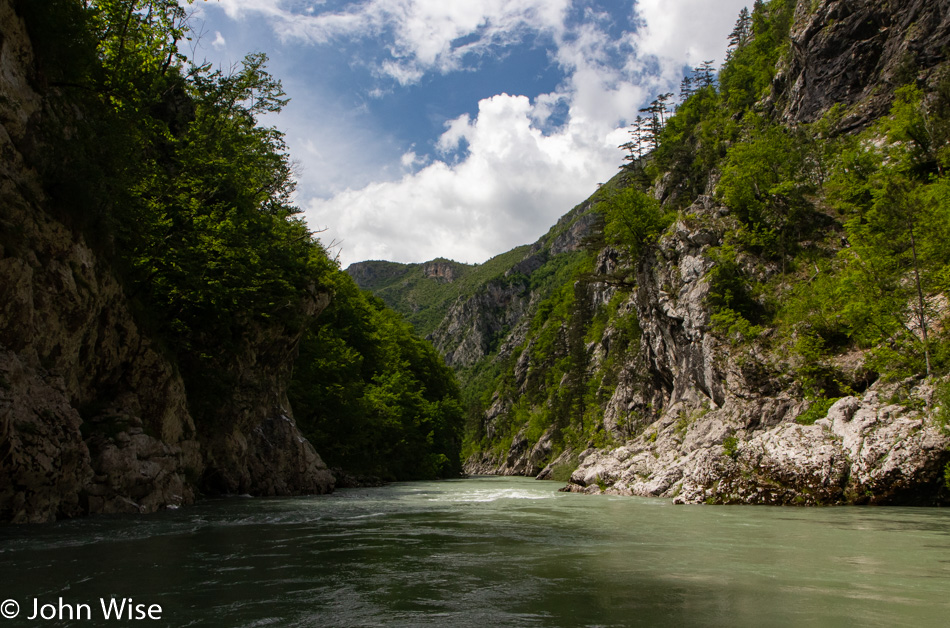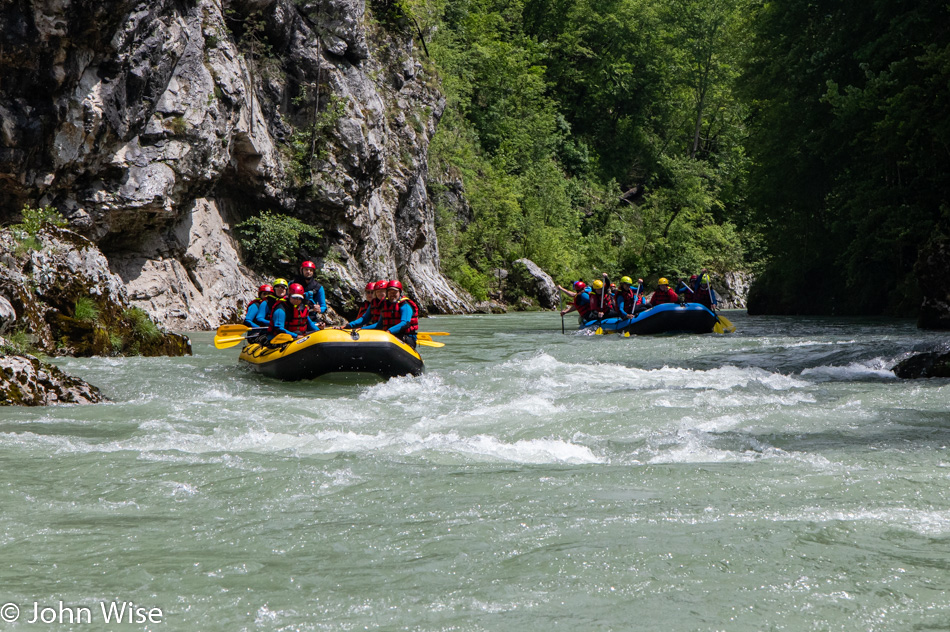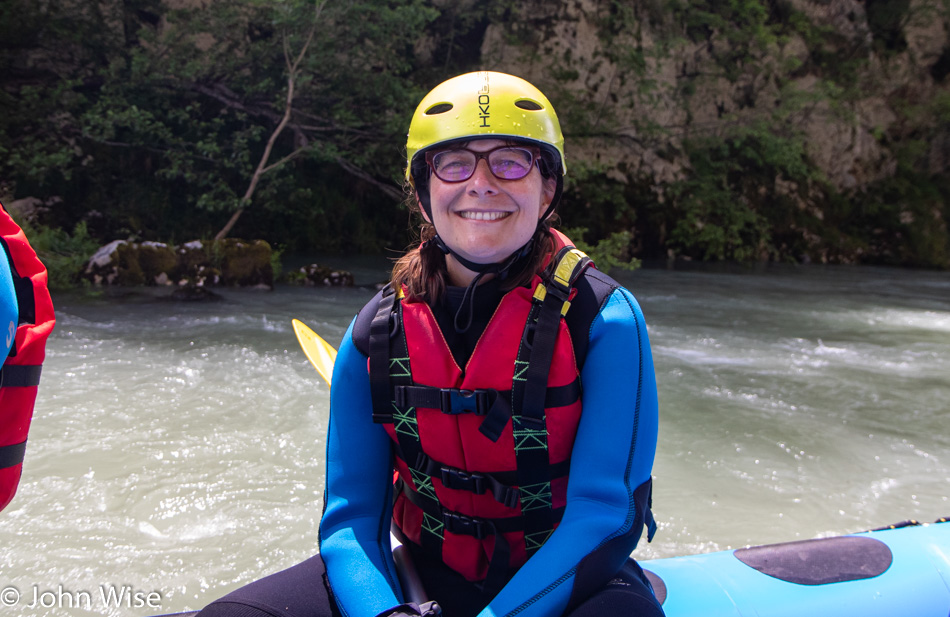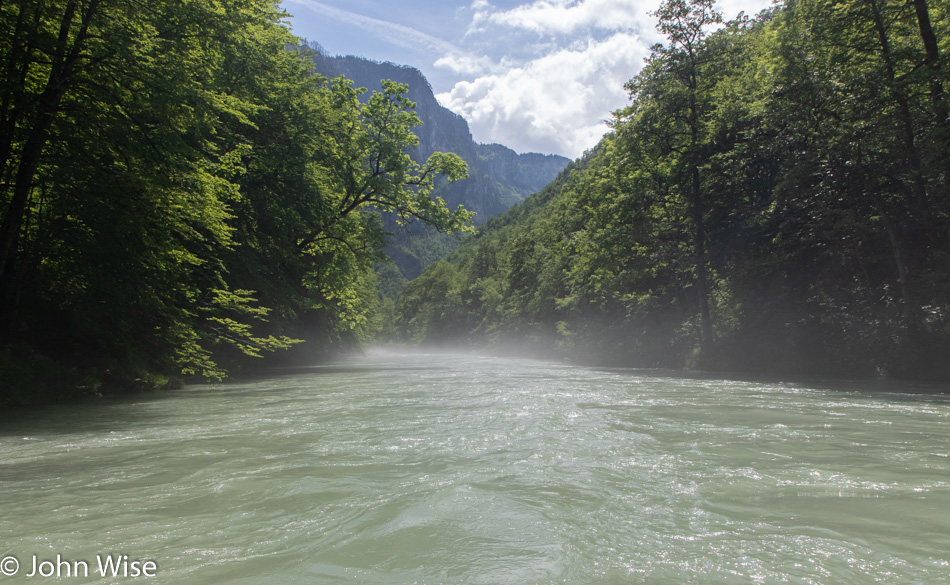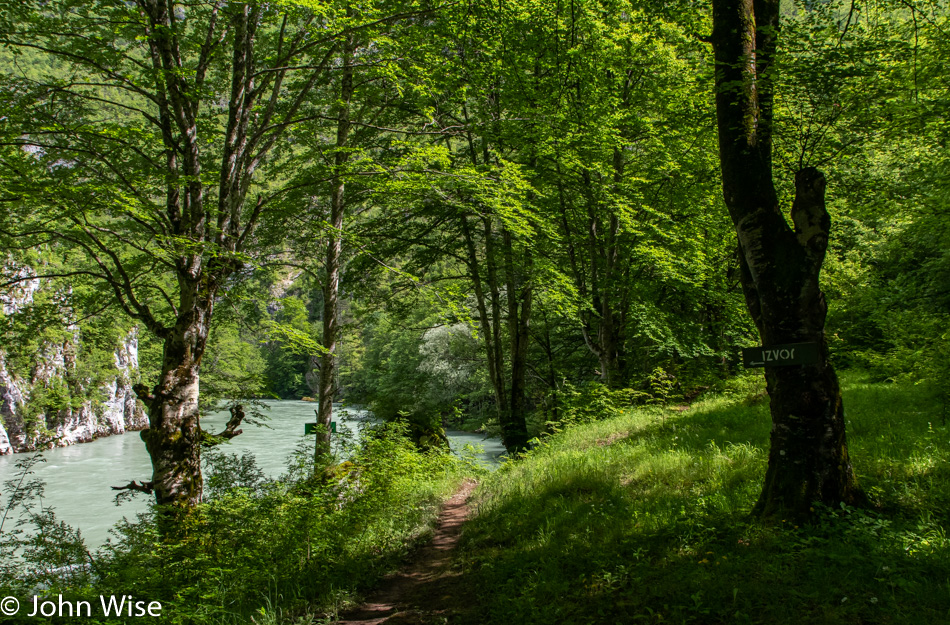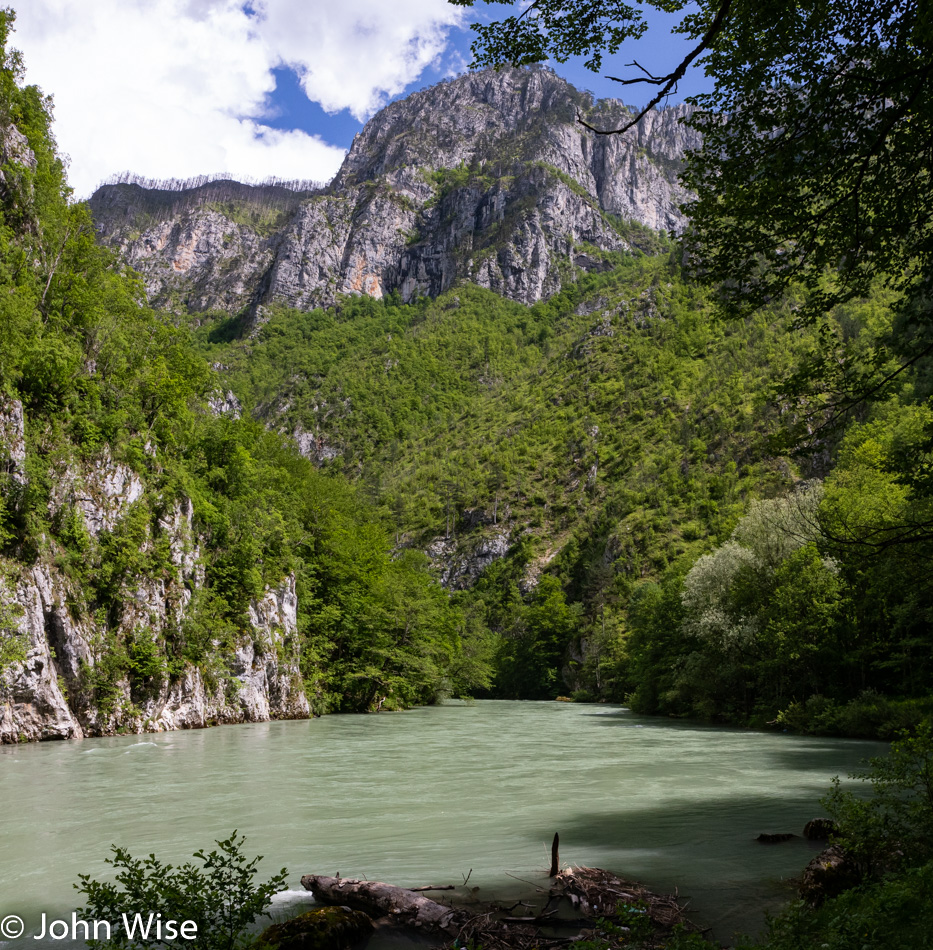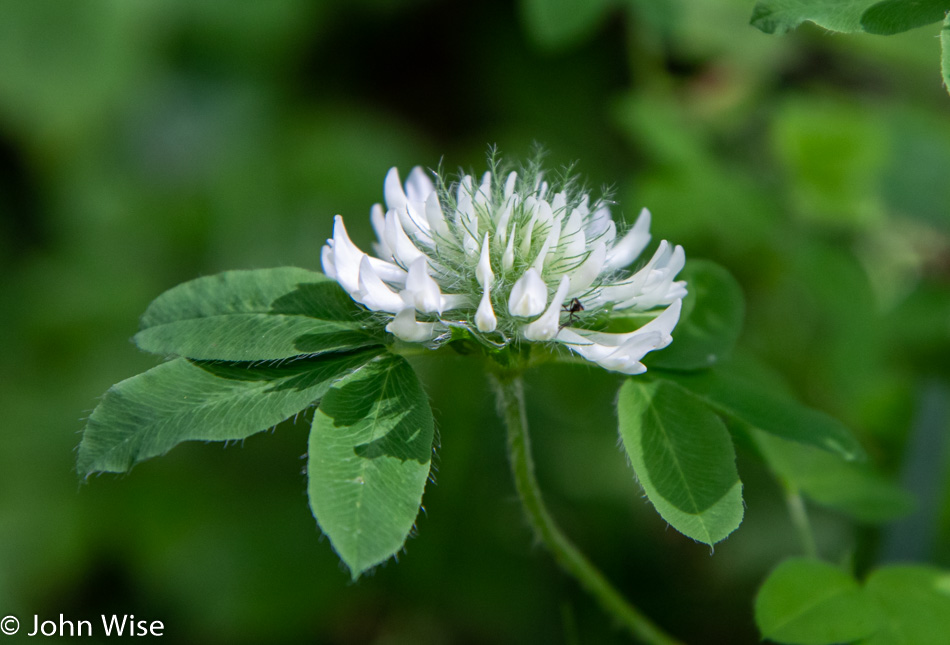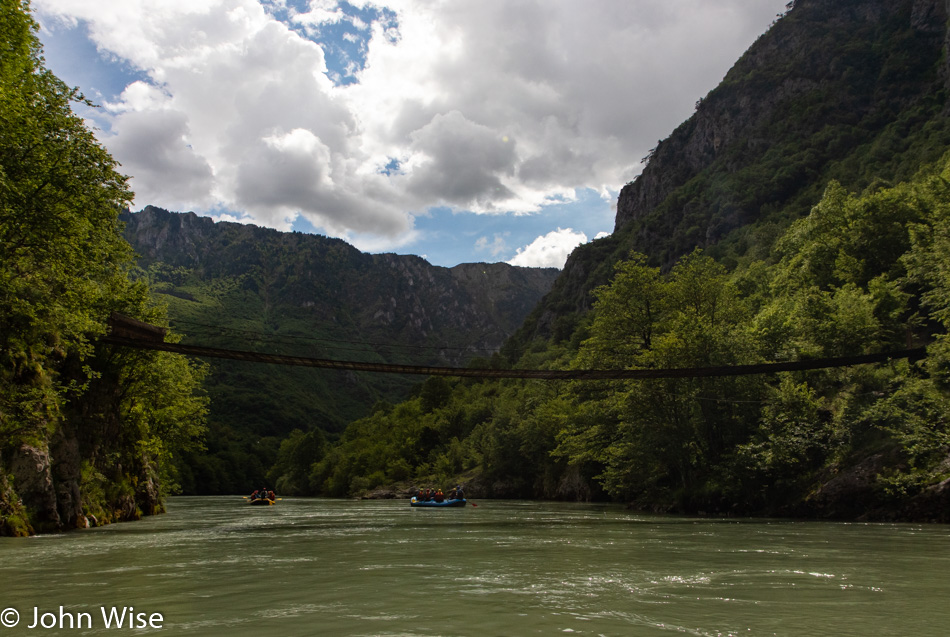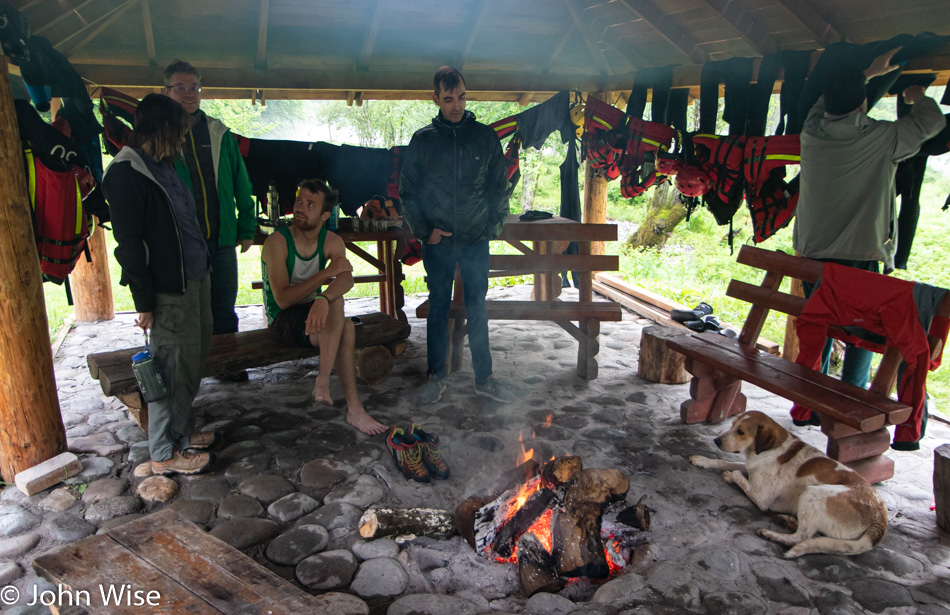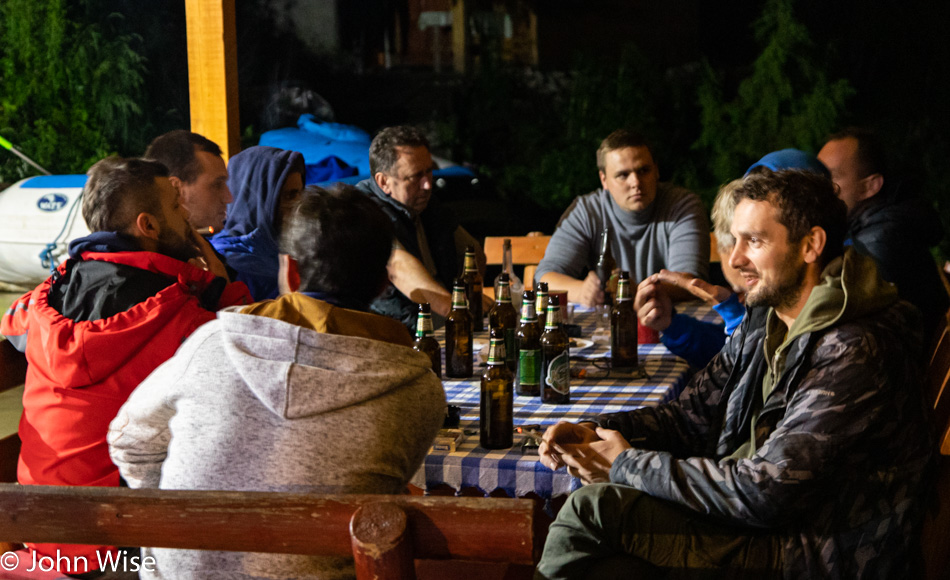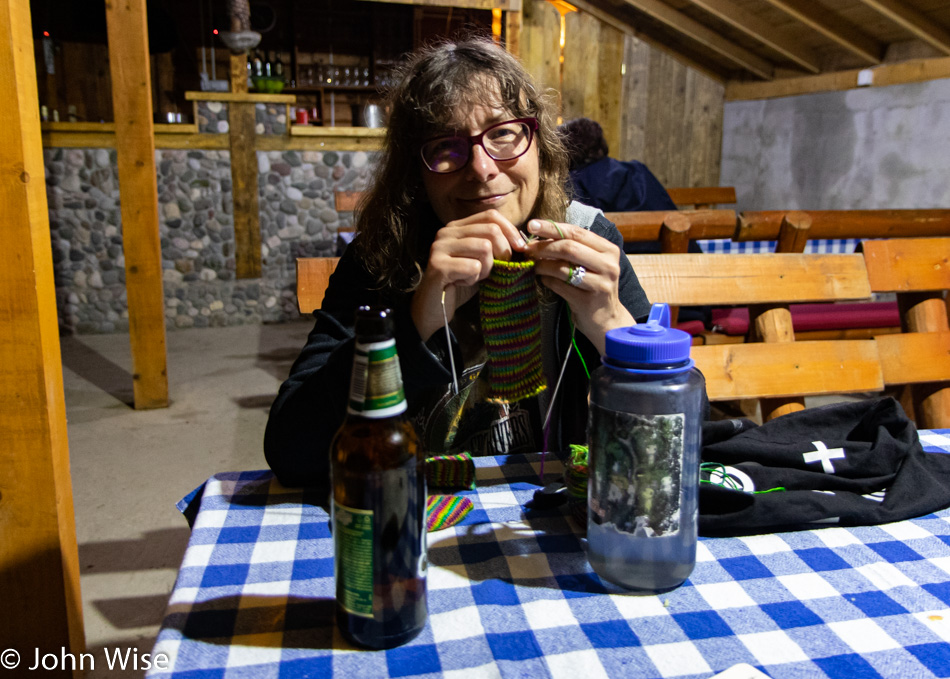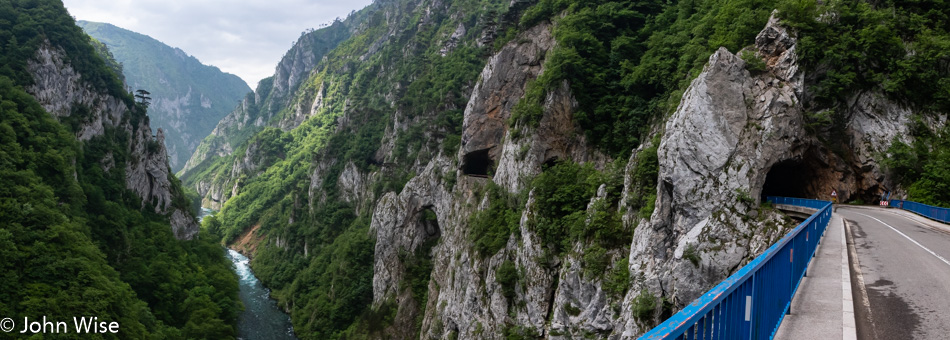
Piva River Canyon in Montenegro is effectively where we are starting our day following the more routine activities such as showering, eating breakfast, and writing. Speaking of writing, here are some thoughts in this regard:
There are countless impressions made over the course of a day while on vacation. While out here, I do not treat this as mere entertainment to take me out of my routine. It’s an immersive exercise of discovery, learning, and collecting memorable impressions that should last a lifetime. You shouldn’t think that we dwell in these blog entries after they’re posted as we certainly do not live in the past, but when we need to reference something from that time, we’ll look back and find the absolute delight that so many of our memories are intact. What I mean is that there’s a great likelihood that the majority of what we experience on these trips is, in fact, stored in our minds, but without the triggers that exist in these photos and, more importantly, the accompanying text the way of finding our way back here would be almost impossible.
By now, with over 2,100 blog entries and something over 1,000,000 words, we would need a good long time to review them all. The window into details of our past is a rich one, and I’m guessing might be quite unique as how many people in the history of our planet had the opportunity to travel to so many places, capture images by the 10’s of thousands, and then sort it all into a narrative that helps demonstrate how extraordinary a day of wandering around can be?
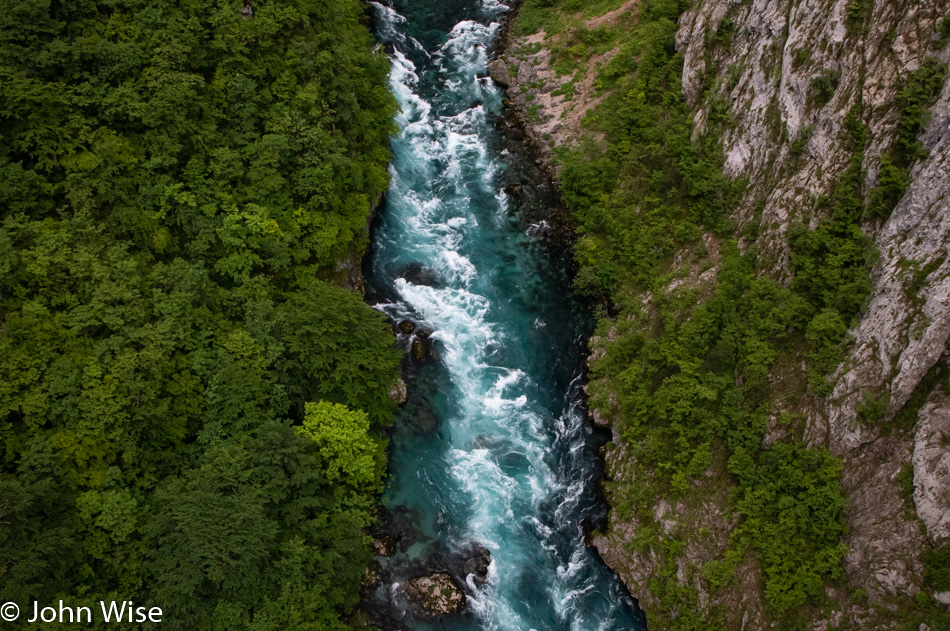
Piva River in Montenegro is not a river we’ll be running any time soon. The flow or lack of it can make for difficult conditions when trying to raft this river that has been severely restricted due to the dam holding its waters back. To see what rafting conditions on the Piva look like when the dam is not releasing very much water, click here to watch a video.
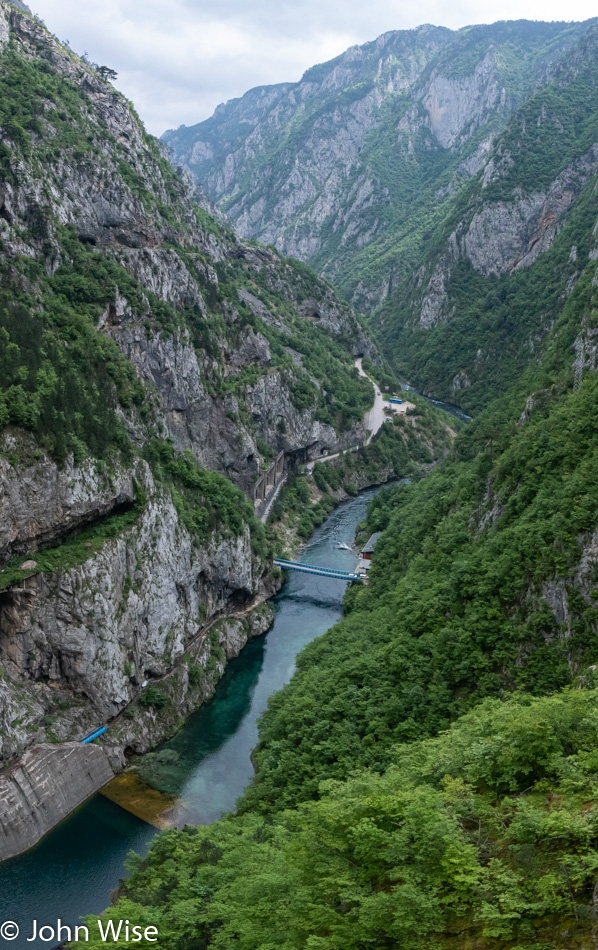
We are looking down from the top of Mratinje Dam into the canyon where the Piva River flows. Just to our left is the dam, and, well, it pretty much looks like a dam, a giant wall holding back a load of water that is now pooled into a lake.
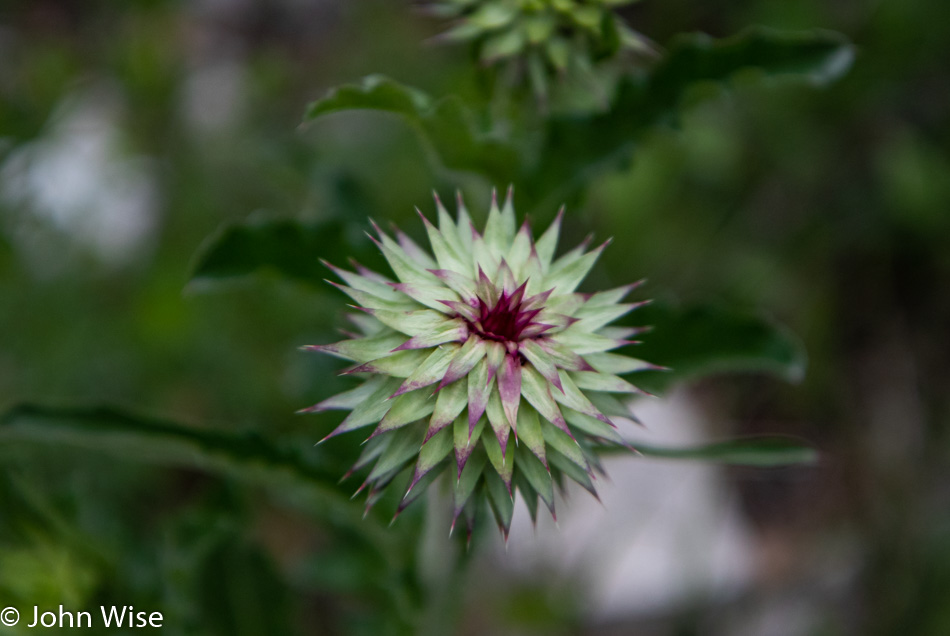
There need not be a reason to snap a photo of a flower that catches your attention. This is posted here just because.
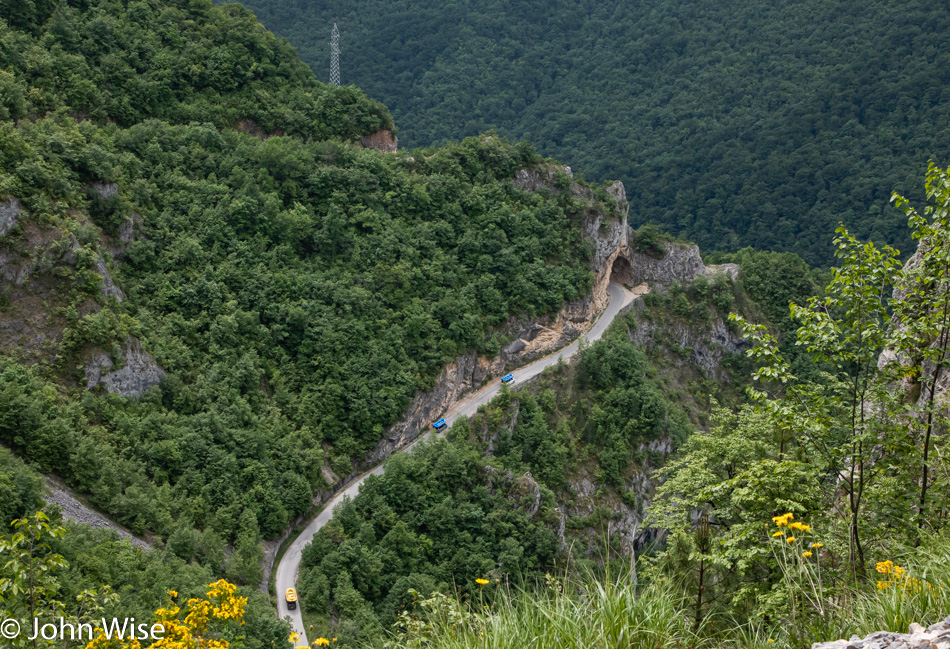
We’ve left road M18 and are now climbing up the P14. Look closely at the gray strip, and you’ll see two of our vans with blue rafts on top that are coming with us to the Tara River.
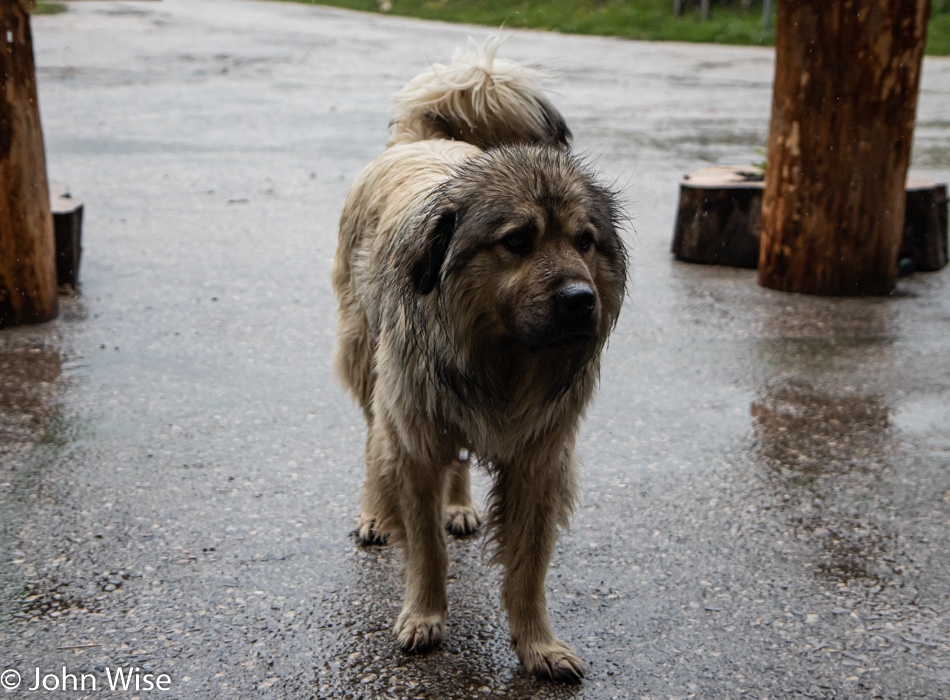
Eco Village Milogora in Trsa, Montenegro, makes for a perfect rest stop that was accompanied by greetings from this big, wet, plodding dog that reluctantly crept our way for a couple of rubs.
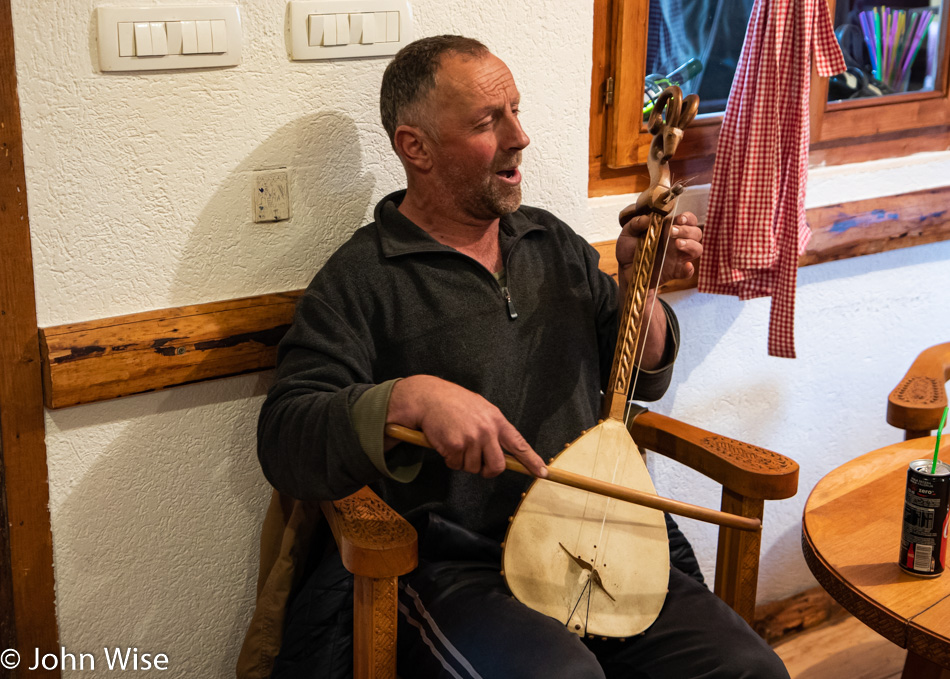
Inside the cafe, we were lucky to be there while a man with the national instrument of the Balkans called Gusle was about to play a few songs. This instrument has a round wooden back, a skin belly, and a single horsehair string secured at the top of the neck by a tuning peg. The man’s first song was sung not only by him but in which another half dozen people of Balkan descent joined in a rendition of a victory song over the Ottomans following a famous 14th-century battle in Kosovo.
Petar tells us that in his 15 years of guiding people, this is the first time that someone playing the Gusle was on hand in the cafe for people traveling through to hear this type of traditional folk music. With a cappuccino to warm us in these chilly mountains and this concert being performed here today, it feels like a rare experience that only adds to the incredible value of our journey into the local culture.
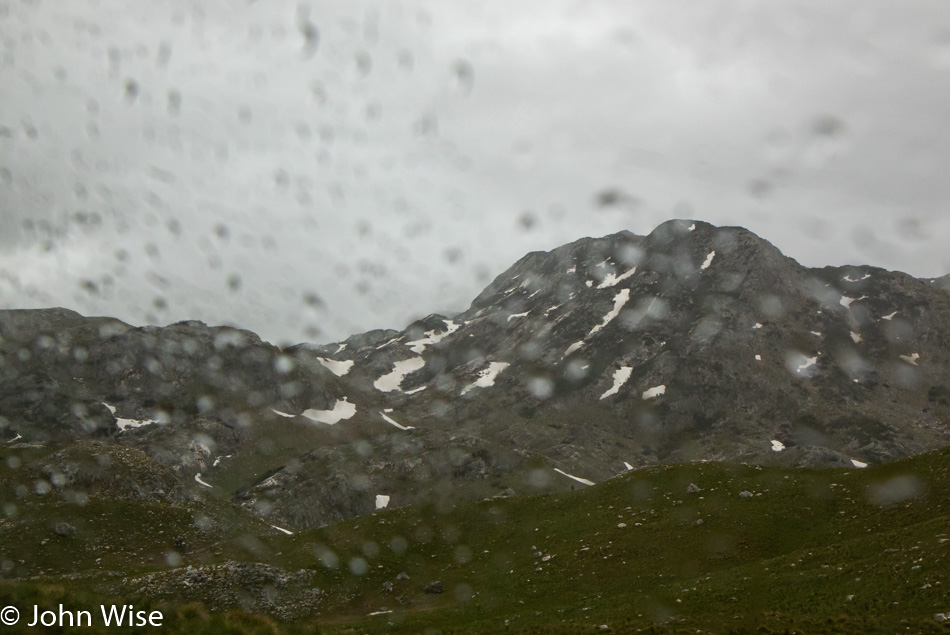
We’ve been driving down one of the narrowest roads I’ve been on, passing through a beautiful but rainy mountain area here in Montenegro, better known as Durmitor National Park. Here I am in the third row of the van, and the windows are covered in raindrops. Taking photos has been an act of futility as mostly what I capture are blurry water droplets obscuring the view, as you see in this photo. I have dozens of images of the pass that look just like this.
This was a major part of our safari today, and with the rain and heavy cloud cover, it would be easy to think that this wasn’t as spectacular as it could have been if it had been sunny up here. True that the view would have been different, but what kind of difference is the correct difference? Why can’t we see past the temporary facade and find that we have it within ourselves to fully imagine just what this would all look like at another time? Well, we can, and the reason to return with the hope of other weather conditions would be that we could take a long walk in this amazing area, or maybe we could rent e-bikes somewhere nearby and take a ride through. Should we never be able to return, we at least have the satisfaction of knowing that we’ve once again seen something special and that we should keep that extraordinary opportunity to experience these rare moments close to our fondest memories, just like the rare individuals we get to meet who inspire us with being legit and solid characters.
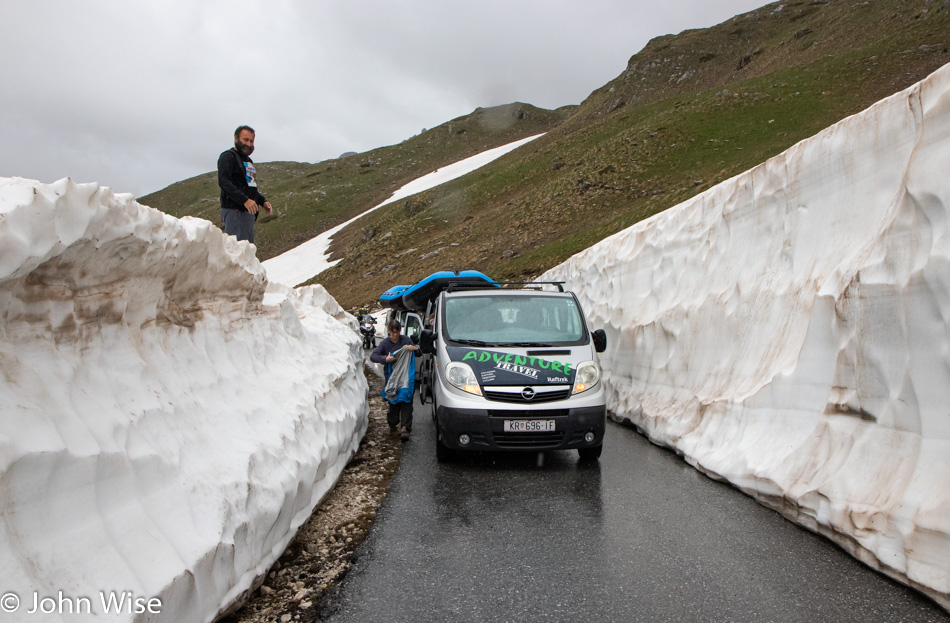
We’ve been told that this road only recently opened for the season after being cleared of the remaining snow. With a pause in the rain but no relenting of the wind, we stop a moment to stretch our legs and grab a couple of reminders of where we’ve been.

Durmitor is designated as a UNESCO World Heritage Site and it’s easy to see why when taking a pause to look out over this landscape. There’s even amazing skiing nearby, actually, there is no skiing available anywhere nearby right now, but during winter, it’s supposed to be pretty great. I’d like to emphasize that we’ve been told time and again that the weather we’ve been experiencing for the majority of our journey here in the Balkans is an anomaly. It’s almost comic how apologetic people want to be for how we are seeing their country for the first time as though somehow it would spoil our impressions.
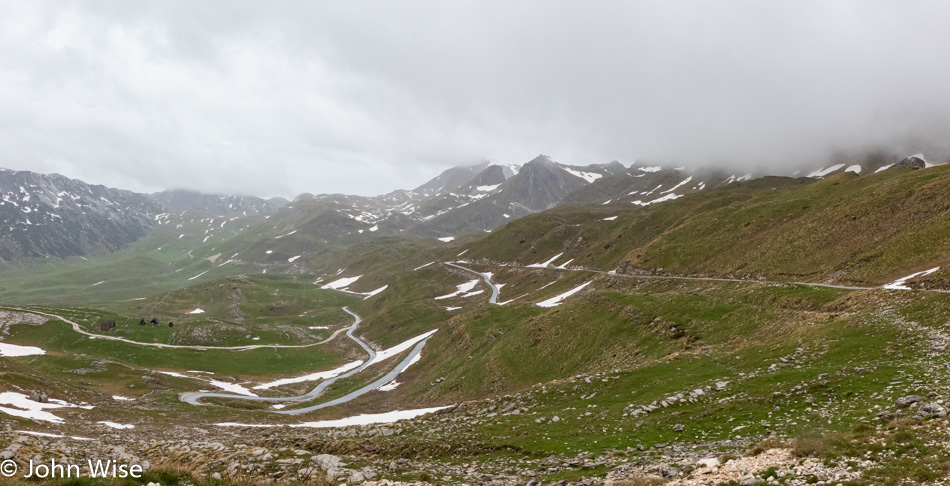
There’s a limit to how much I can write about the environment and my impressions when, after more than two solid months of writing every day, I’m starting to burn out. At the time of writing some of this narrative, we have been back in the United States for over two weeks, which effectively keeps me in a mindset of still being on vacation. You see, I’m living in the photos and memories of our Balkans vacation from morning till early evening when I’ve hopefully finished putting together one of these blog entries, and Caroline takes over to ensure my grammar and facts are gelling with reality. I’m in a bit of a race to finish our extended European vacation as shortly, our niece Katharina will be arriving in Phoenix, and should hopefully be able to dedicate my attention to her having a great experience here on the western edge of America. Back to telling the other part of our story.
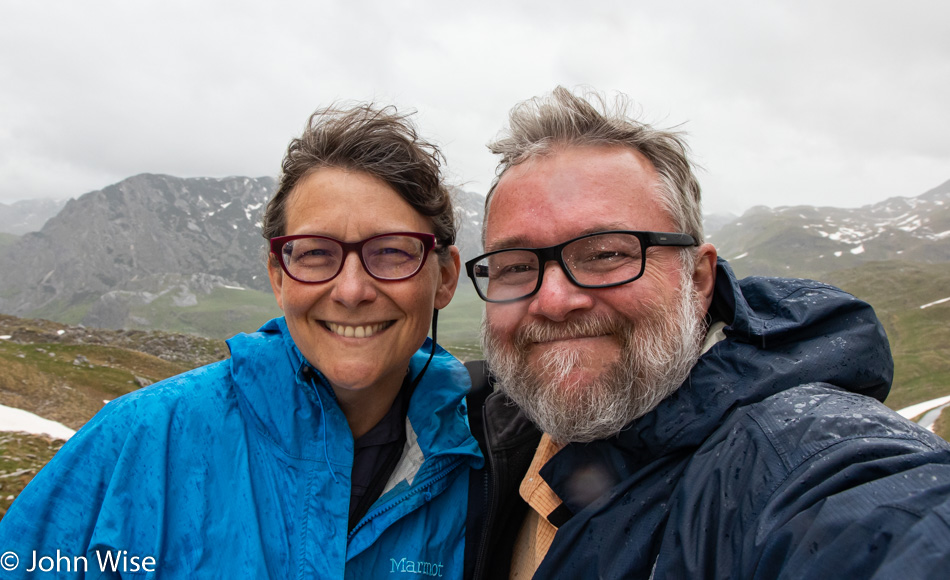
After taking this last photo here in the park with the rain starting to fall again, we continued on the same winding road until we came upon our lunch stop at Restoran Pension Javorovača in Žabljak, where Caroline once again enjoyed a double portion of rakija (this time pear-based) and a lovely trout.
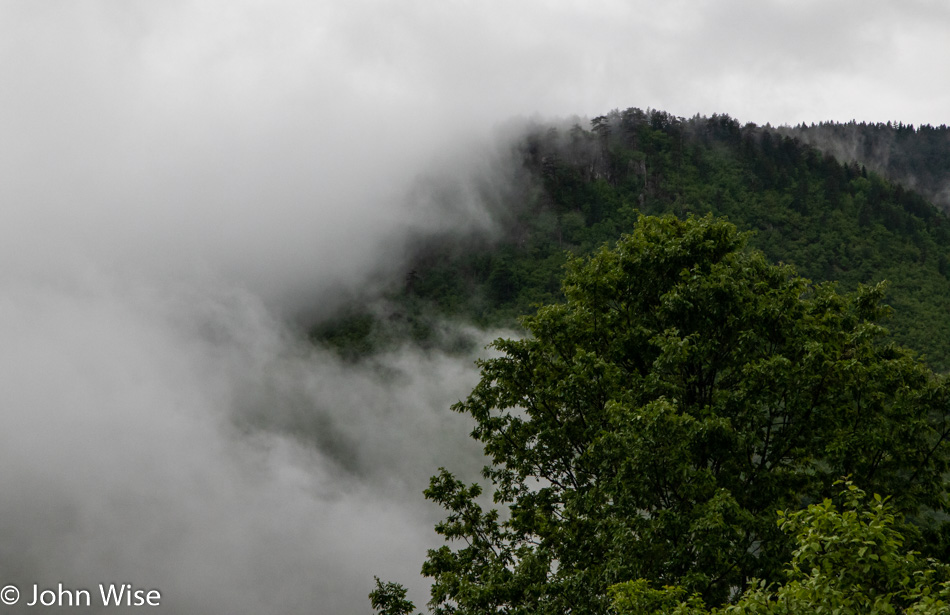
We are arriving at Rafting Camp Smeštaj Kljajevića Luka in Durmitor National Park on the Tara River early in the afternoon. The rest of our lazy day will be filled with an abundance of silence as some very slow-moving, low-hanging clouds blanket the Earth.
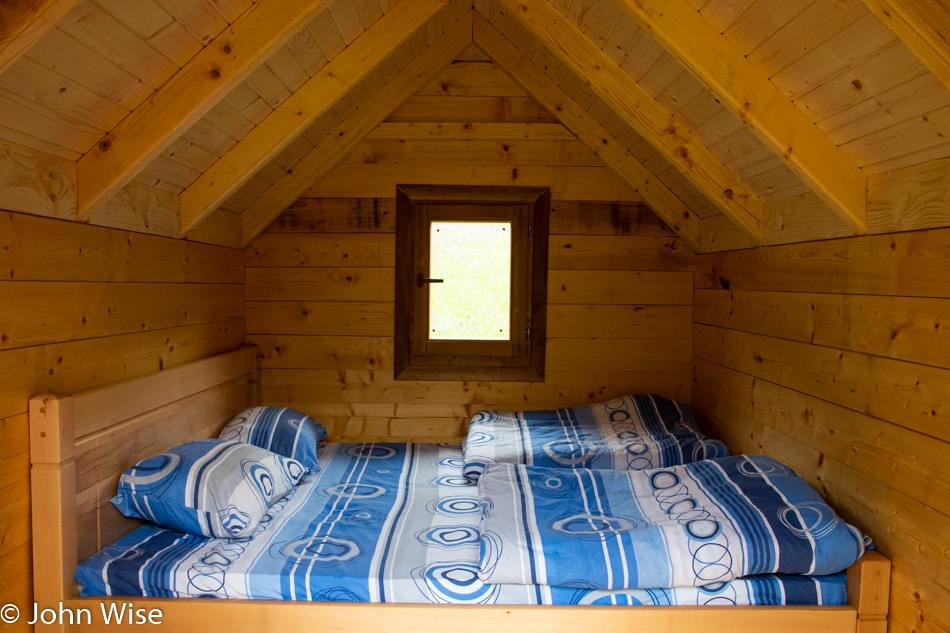
There’s not much to set up in our primitive yet deluxe cabin, so with plenty of time to spare, Caroline and I take off for a walk.
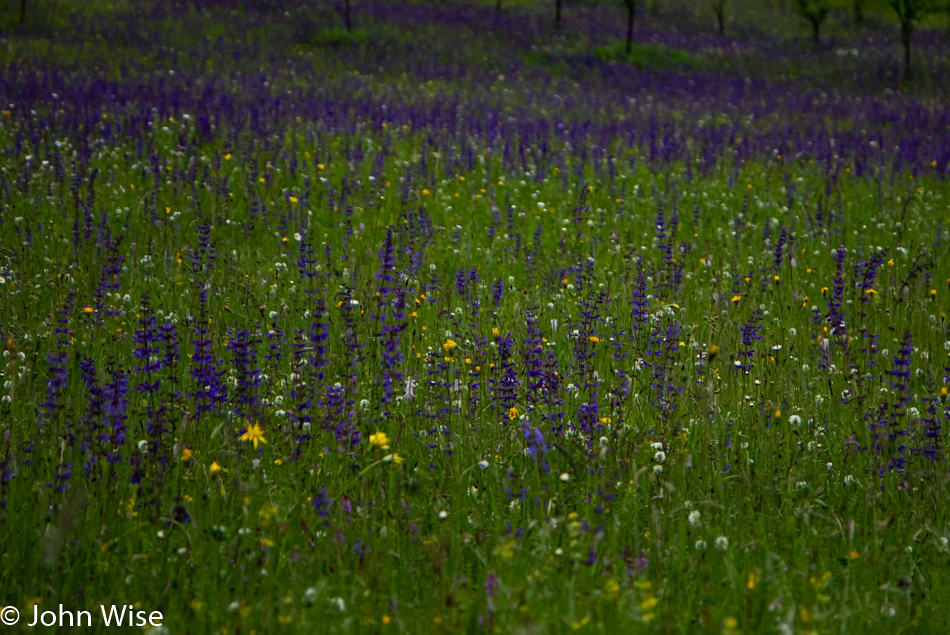
What do you choose to see when the skies are gray? Can you still see the beauty of what is flourishing even when your perspective is darkened due to circumstances largely out of your control?
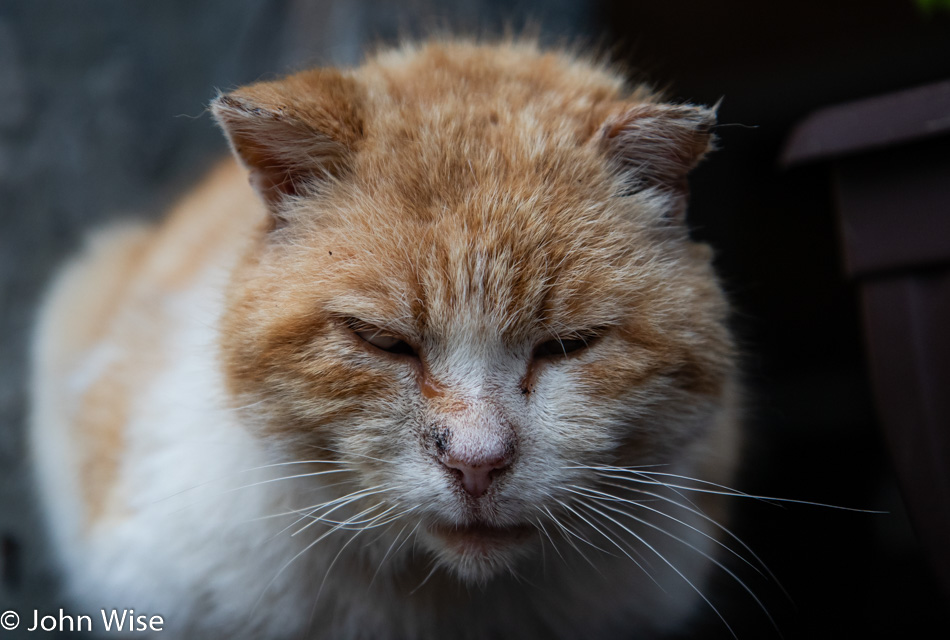
This beaten, chewed-on, one-eye blind, half-an-ear-missing old cat wouldn’t budge as we approached. Maybe it instinctively knew it had fought worthier opponents and sensed our intention to simply share a rub of affection. Either it indulged us, or we spoiled him, but whatever the case, we were impressed with this cat’s tenacity to keep on surviving.
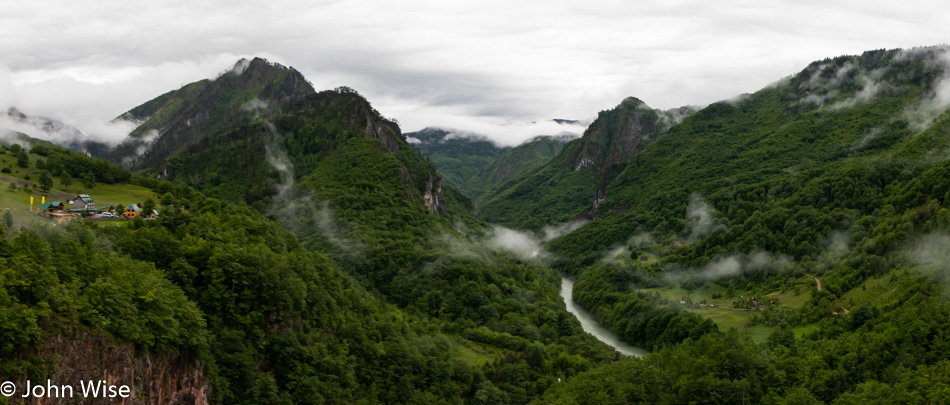
From the bridge called Most Nad Tara that runs over the Tara River, we are looking south to what we will leave behind tomorrow as we board our rafts for the long voyage north back to Bosnia.
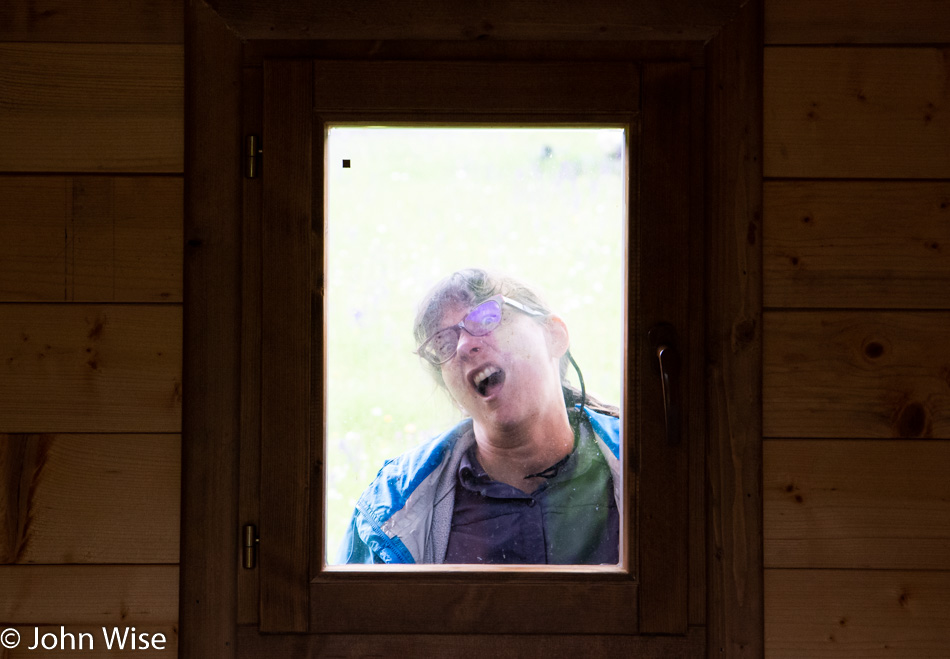
Talking about looking back…I was getting ready to set up my CPAP when I glanced through the rear window of our cabin and spotted this strange creature with features frozen in a look I can hardly explain. I threatened her after opening the window that if she didn’t stop looking at me like this, I’d post her photo on the internet, but with her mouth remaining just like that, the best she could do was make guttural gurgling-like sounds that sounded fairly disgusting. She’s lucky I can’t post the sounds she was making, though they did sound vaguely similar to German. After I had taken enough pictures, I finally opened the window so that she could hand me the extension cord for my CPAP, which our friendly hosts had arranged for us from the main building.
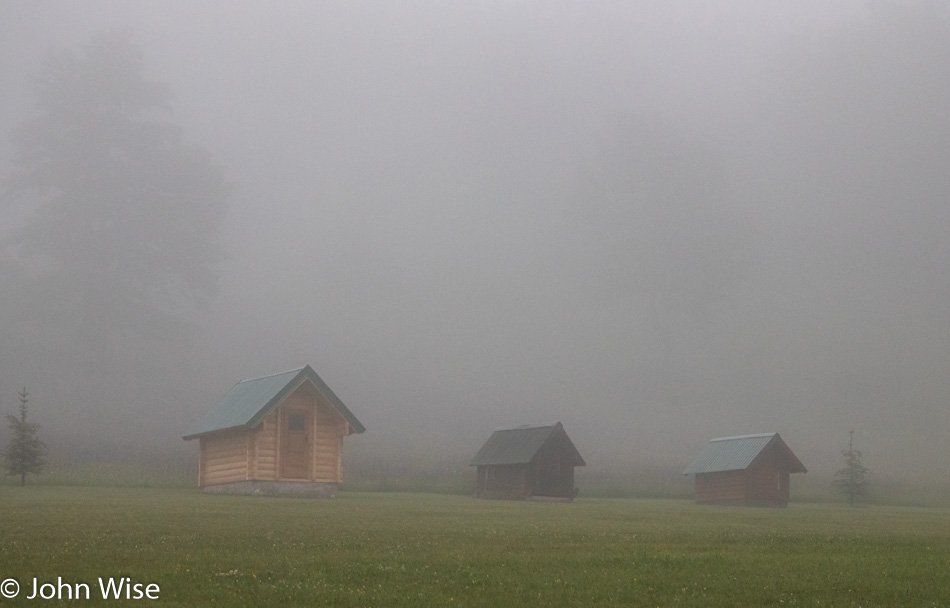
Later, when the fog cleared, Caroline claimed that something in the fog possessed her, but now she was normal. Thinking about her explanation, I can’t help but wonder if that was her look of detoxing because after a couple of drinks, her face started to relax, and the rest of the passengers and crew finally stopped asking what the hell was wrong with my wife.
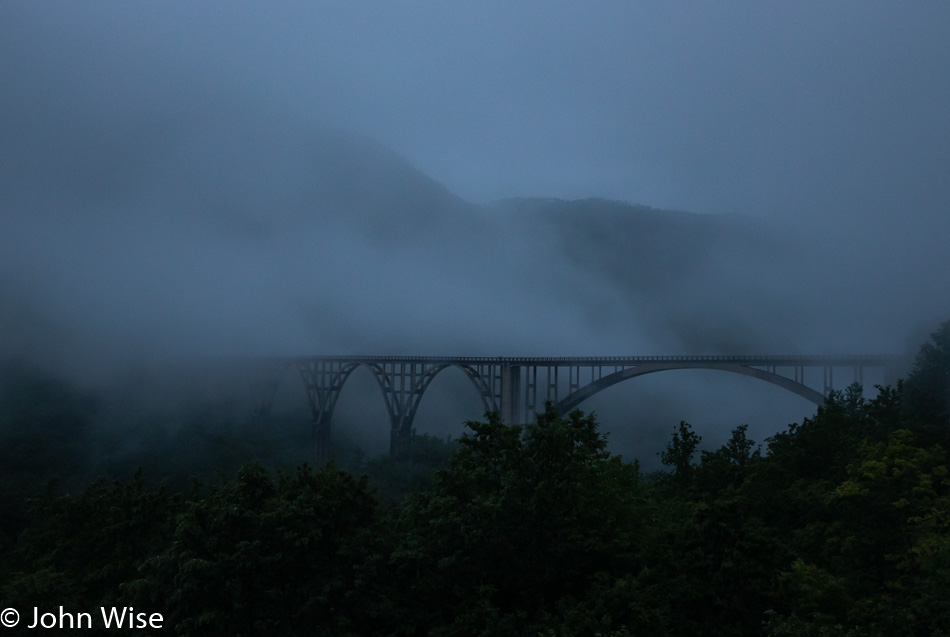
To everything, there is a silver lining, even in the fog of not being able to see the horizon. When what should be apparent under bright, clear skies is obscured by heaviness; we must turn to our imaginations to see what we cannot immediately perceive. If our mind’s eye has not practiced wandering in our perceptions of beauty, language, and music, then maybe our sense for interpreting the unknown is crippled? To be blind to the magic of where our waking dreams are able to bring us is to wear blinders to a vast spectrum of potential. Just because the night is dark doesn’t mean the universe no longer exists or that day will not return.
Those who, through conditioning or by choice, cannot feel the radiant shimmer of life in the dewdrop on the back of the snail have closed their eyes and imagination to being seduced by the fleeting moments of what sparks the creativity discovered by our senses when they are alert to what is just before them. We then are partially removed from our own humanity and reduced to the traits of the beaten and cowering dog.
The cat began to purr as the warmth of my touch radiated into its battered being. It lives outside in the hot and cold, the wet and dry, and knows the hardships of feline life, and yet it is still approachable. Humans, on the other hand, who relish indulging in their misery, forget how to purr.
Bridges emerge out of the distance and offer to deliver us to new places across the chasm. Do we dare cross the structure? Is it made of sturdy materials, or does it hang by a thread? In our own lives, we build bridges within and without, while all too often, they either fail to take us somewhere or they are quick to collapse. The reinforcement of these paths into new horizons is left to pioneers and risk-takers who somehow have come to understand that there might be something worth discovering on the other side. Who dares cross into the unknown? Please understand that I do not speak of physical terrains but of mental landscapes that have vast distances between the places of comfort and adversity where new strengths might be your only reward.

